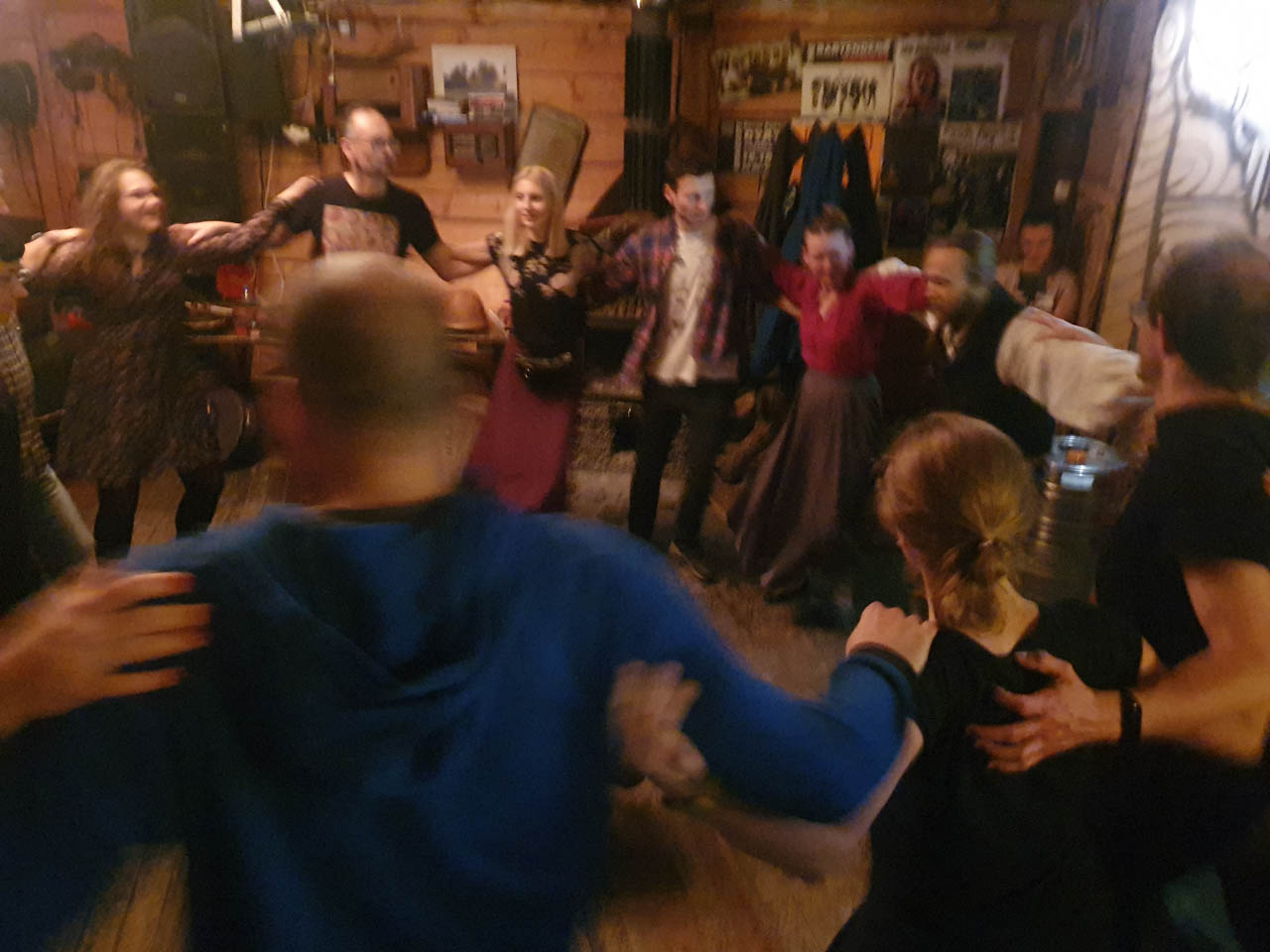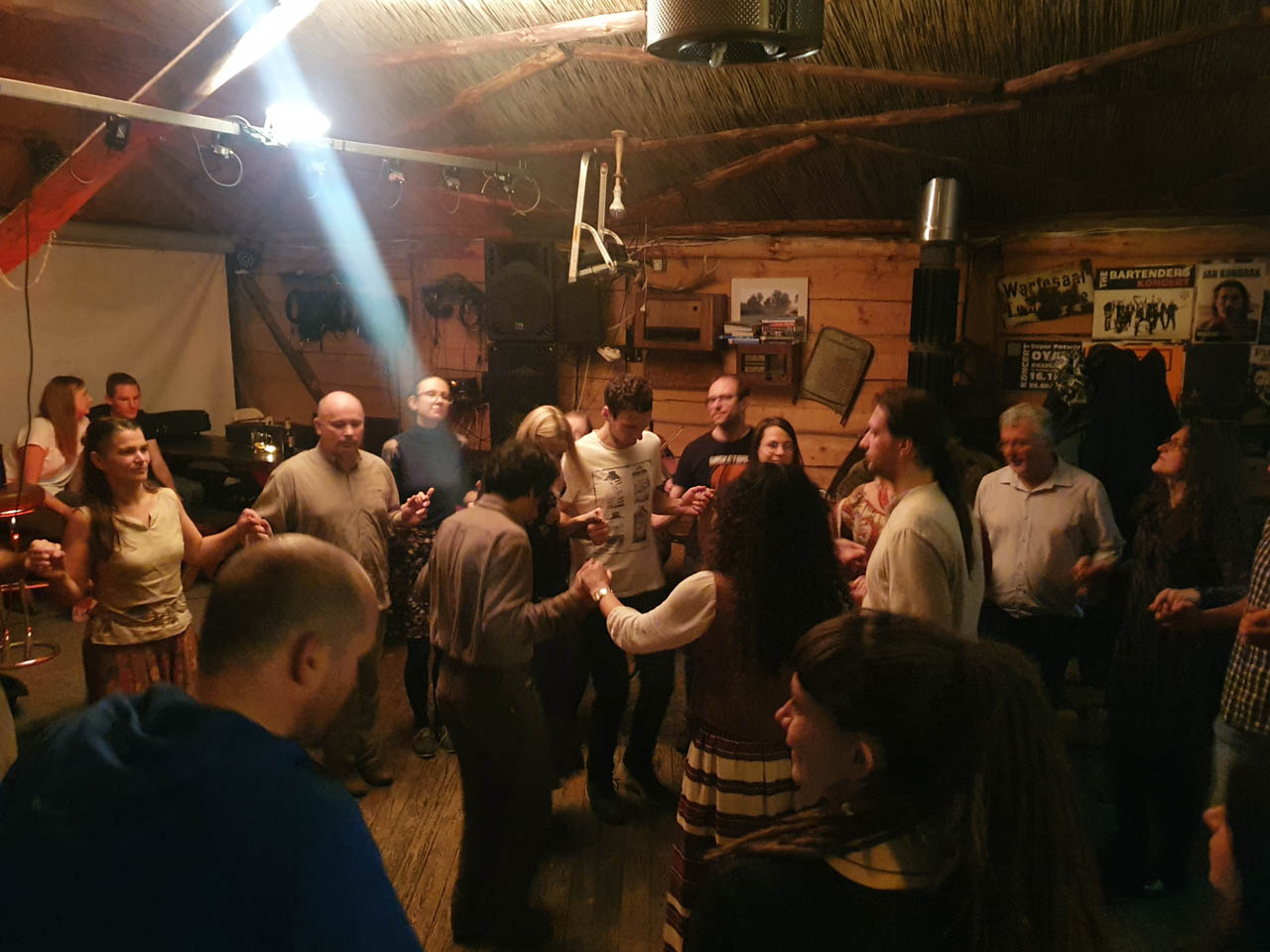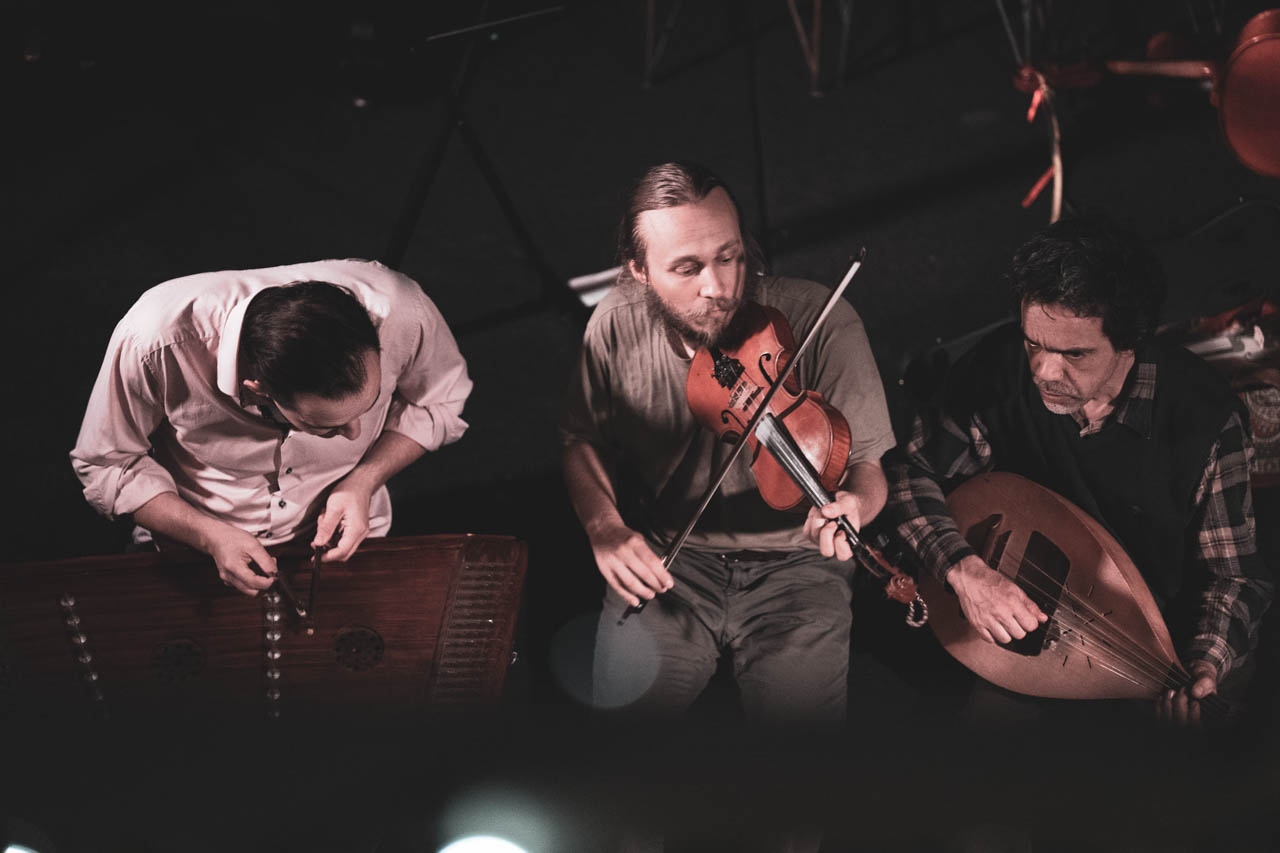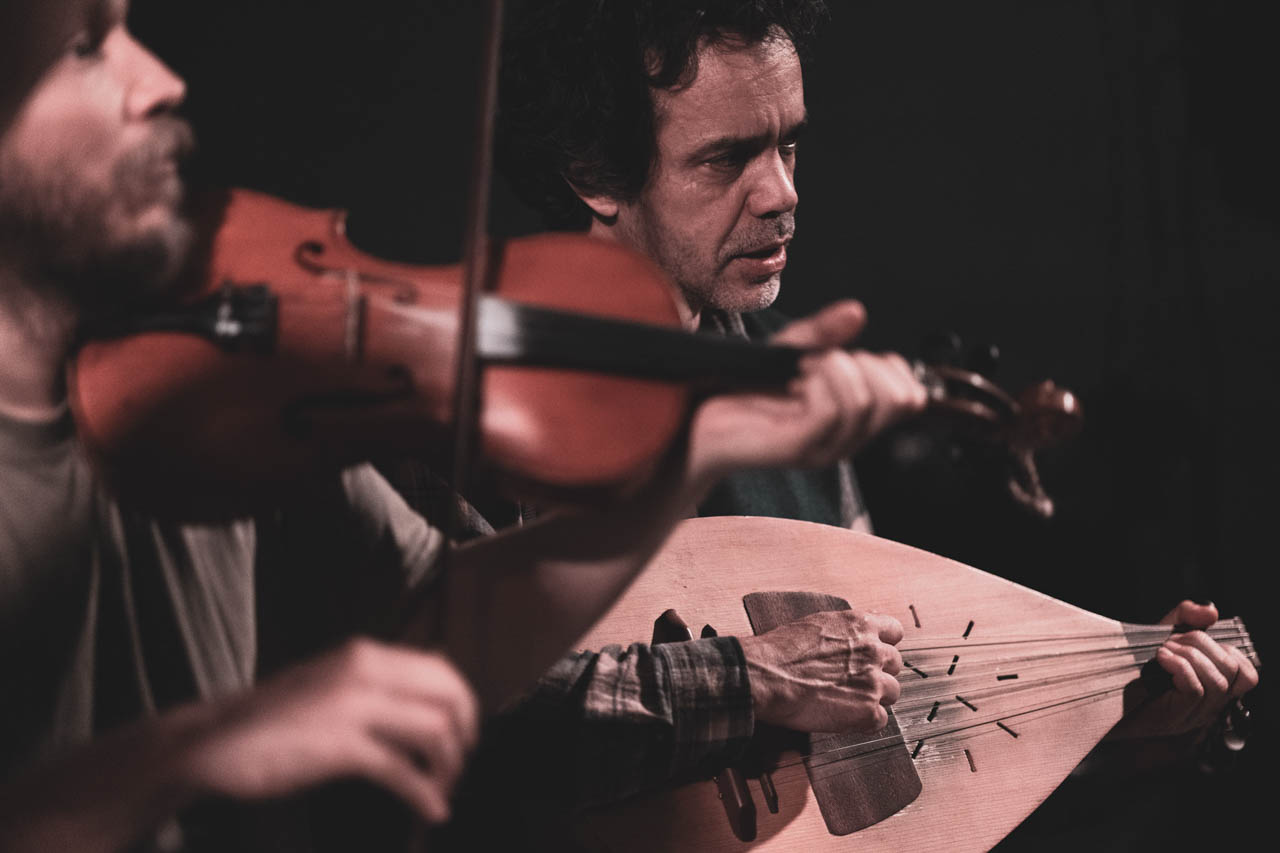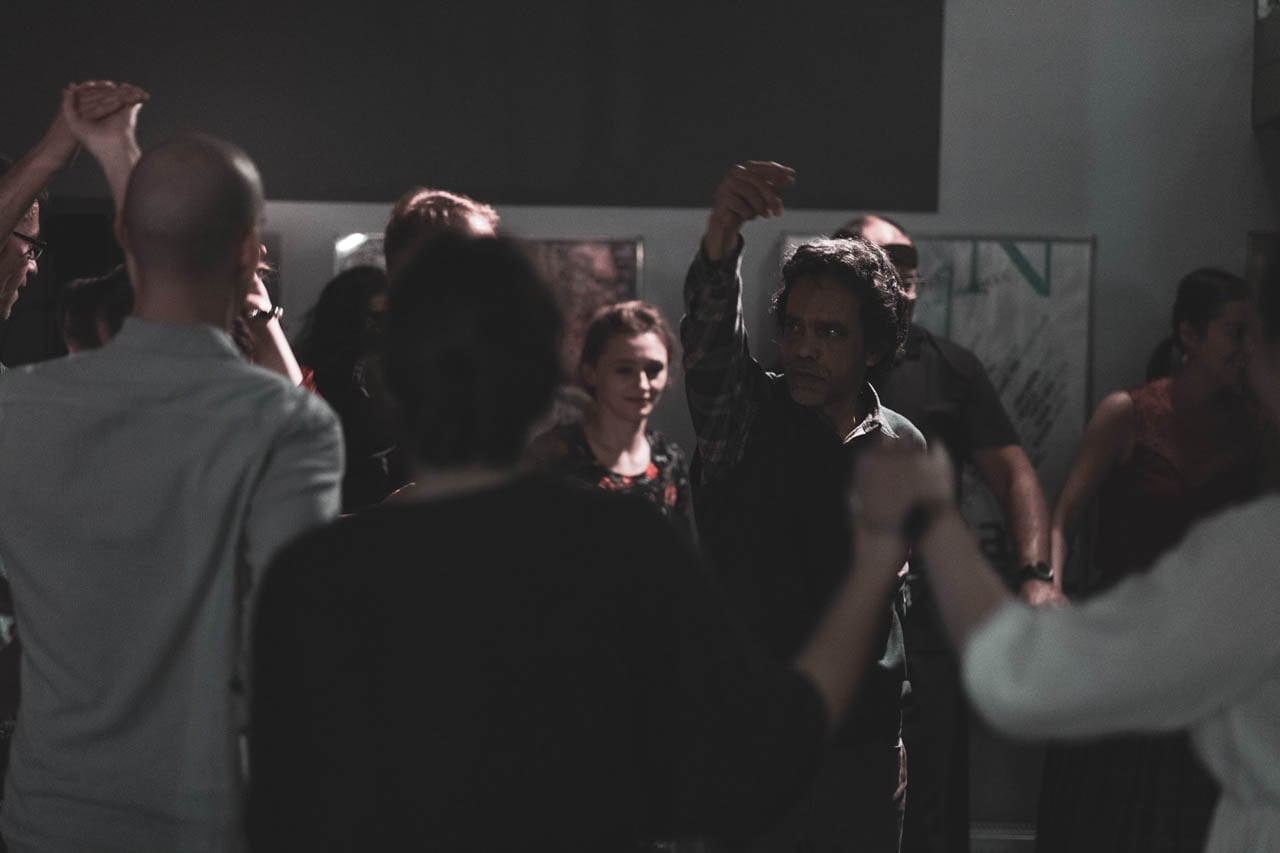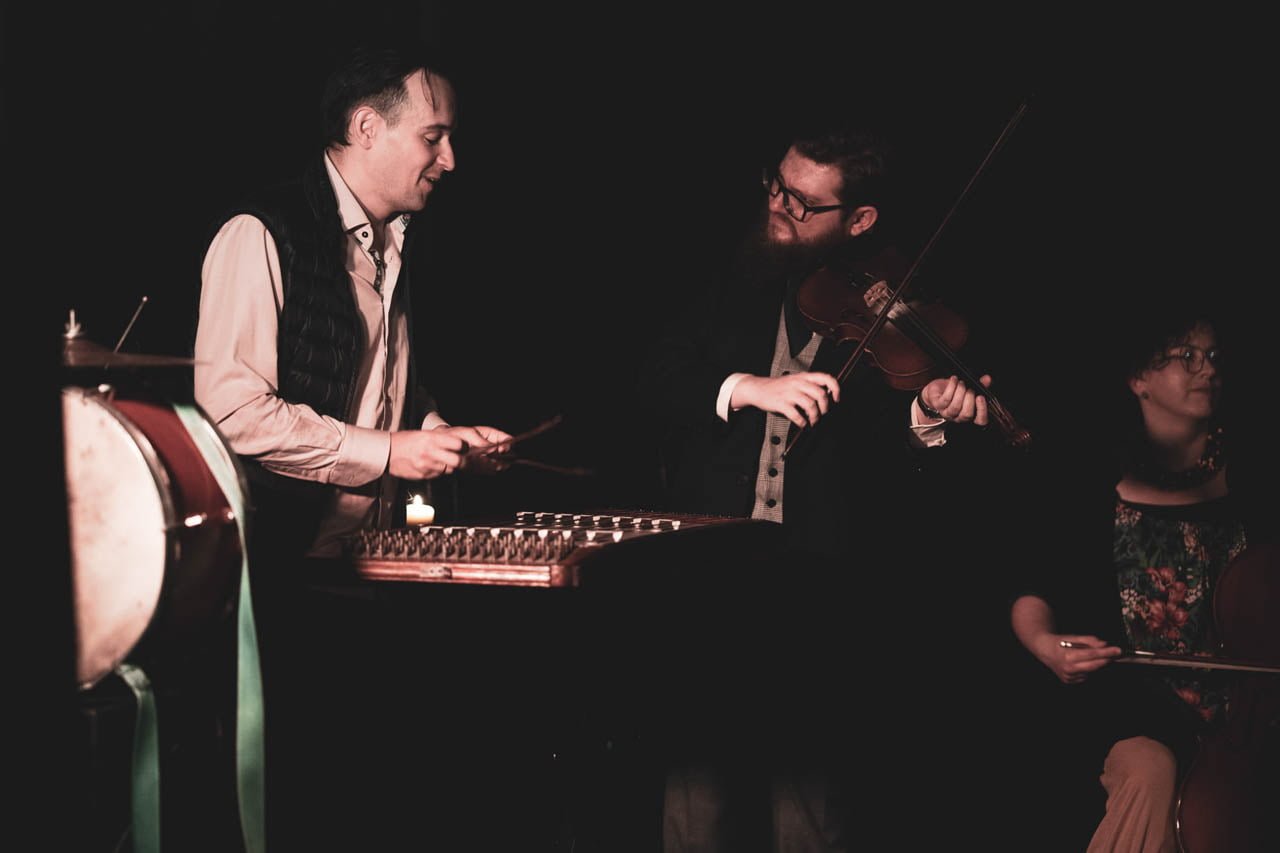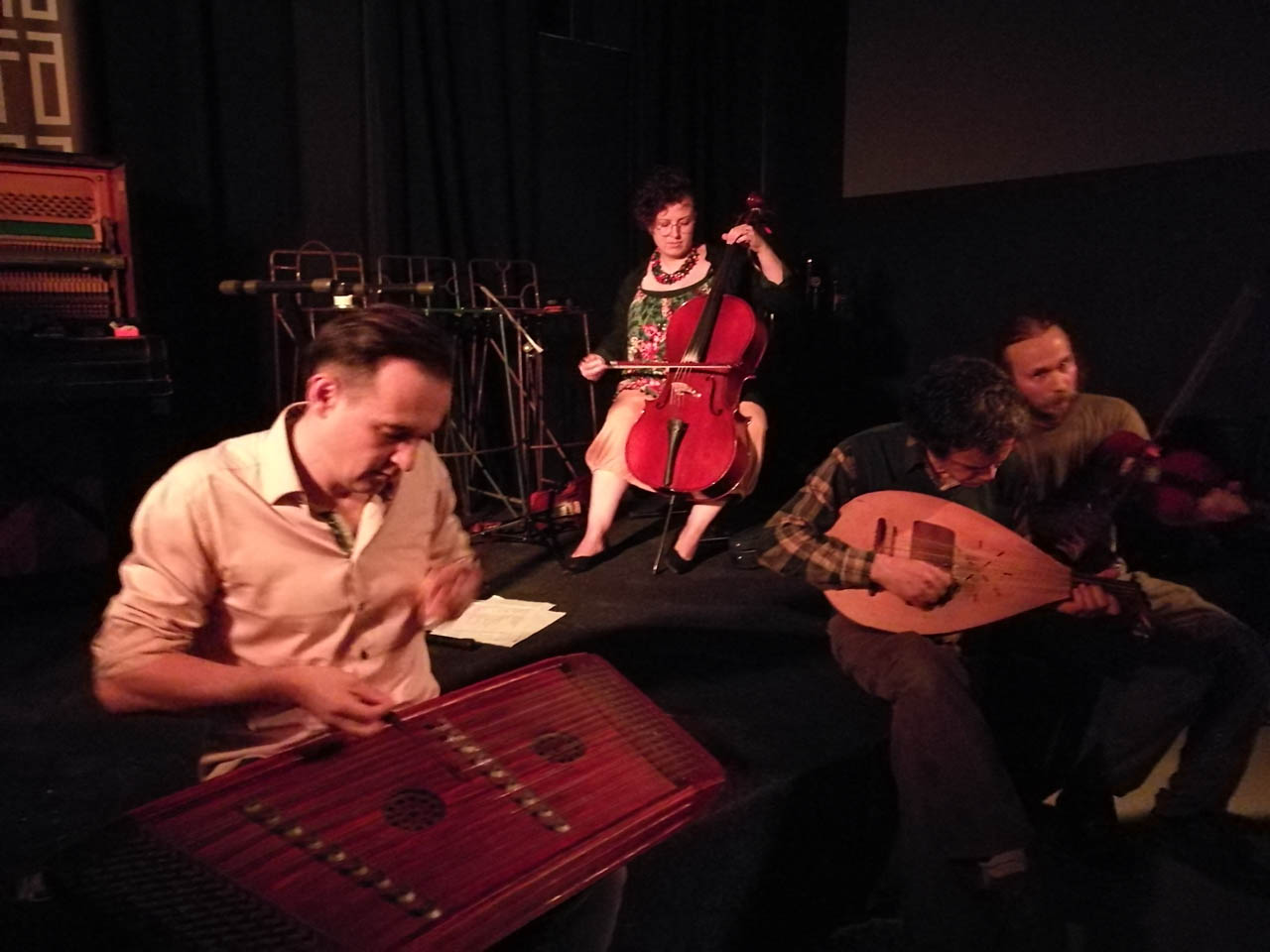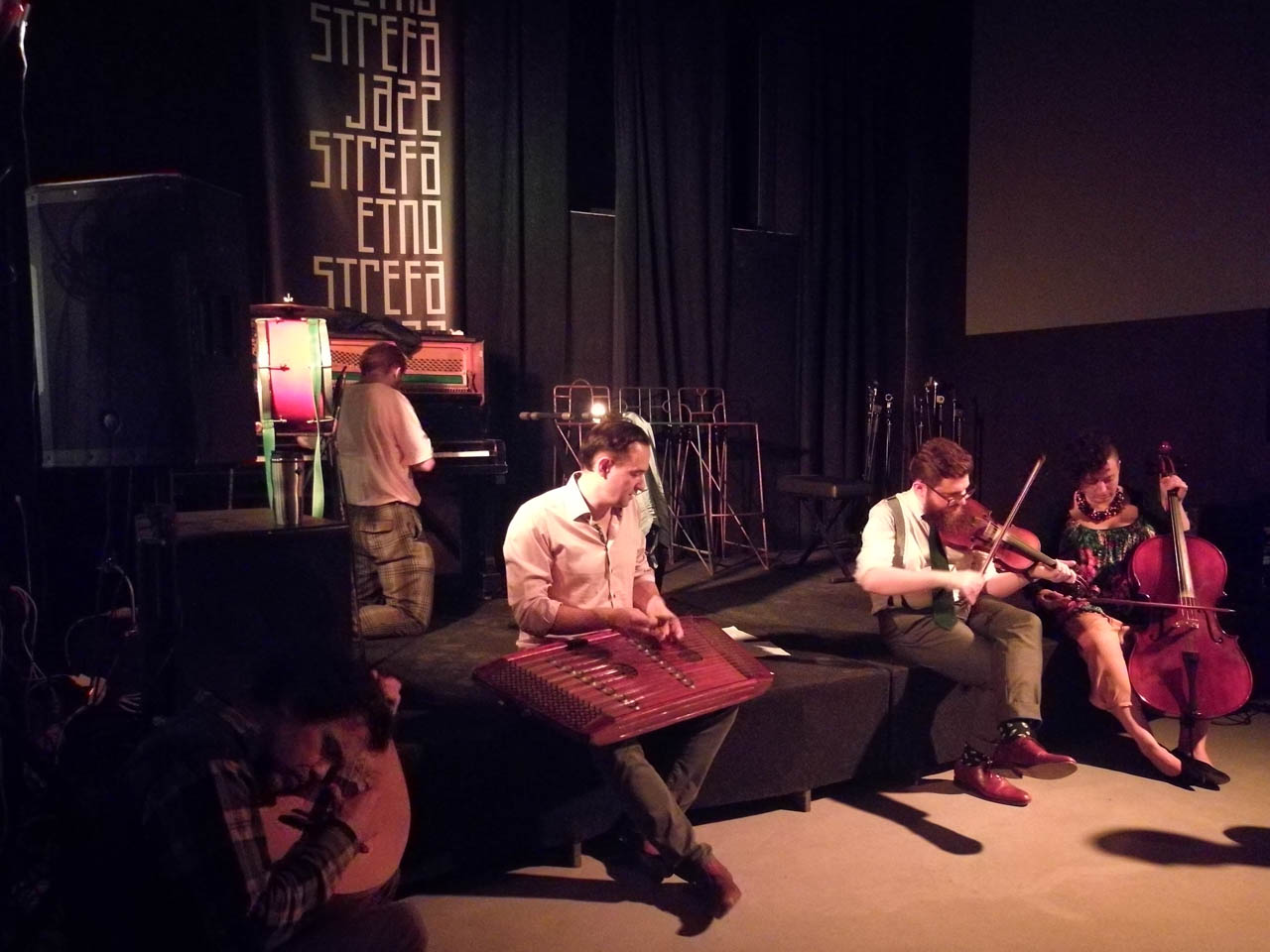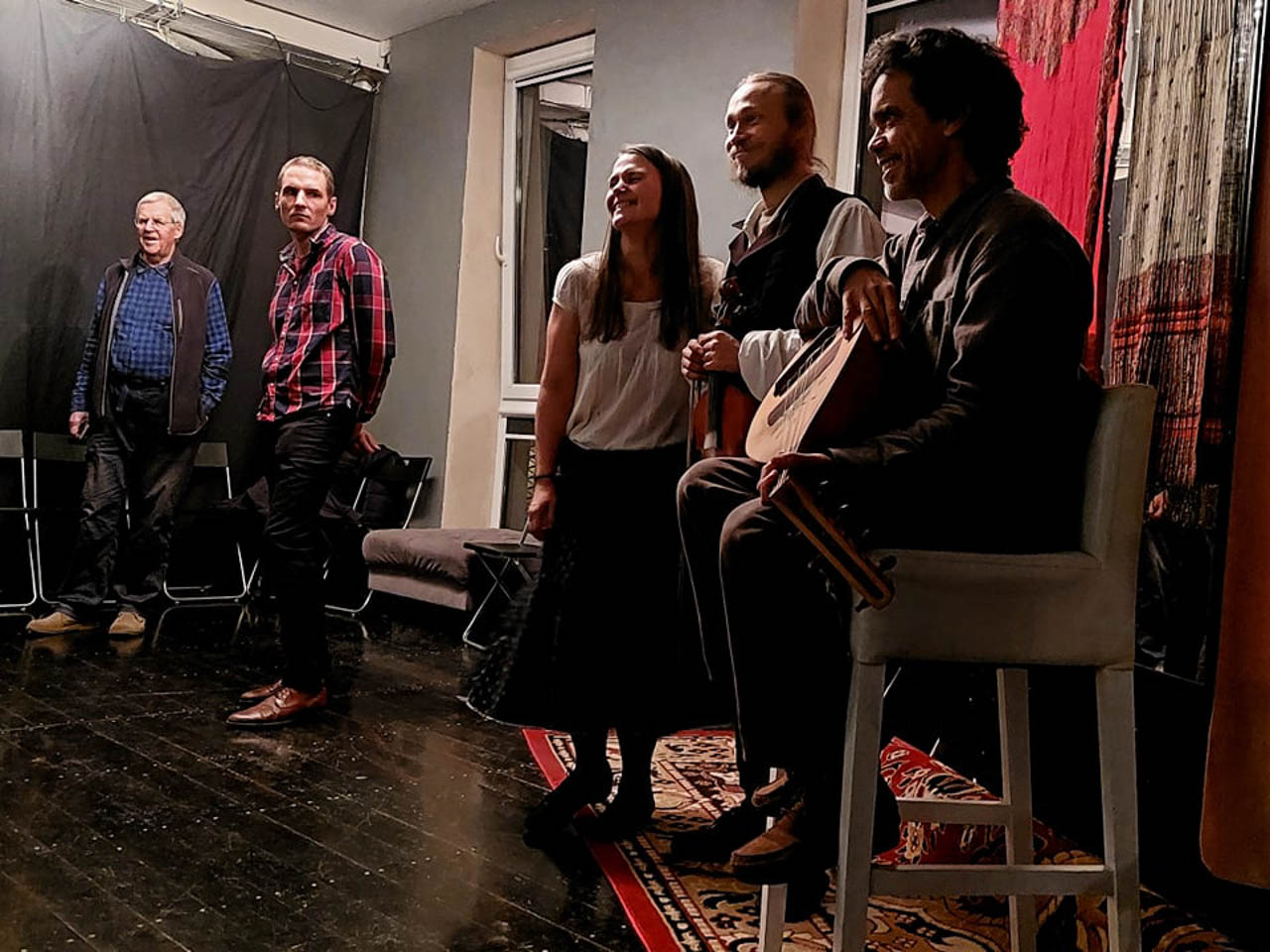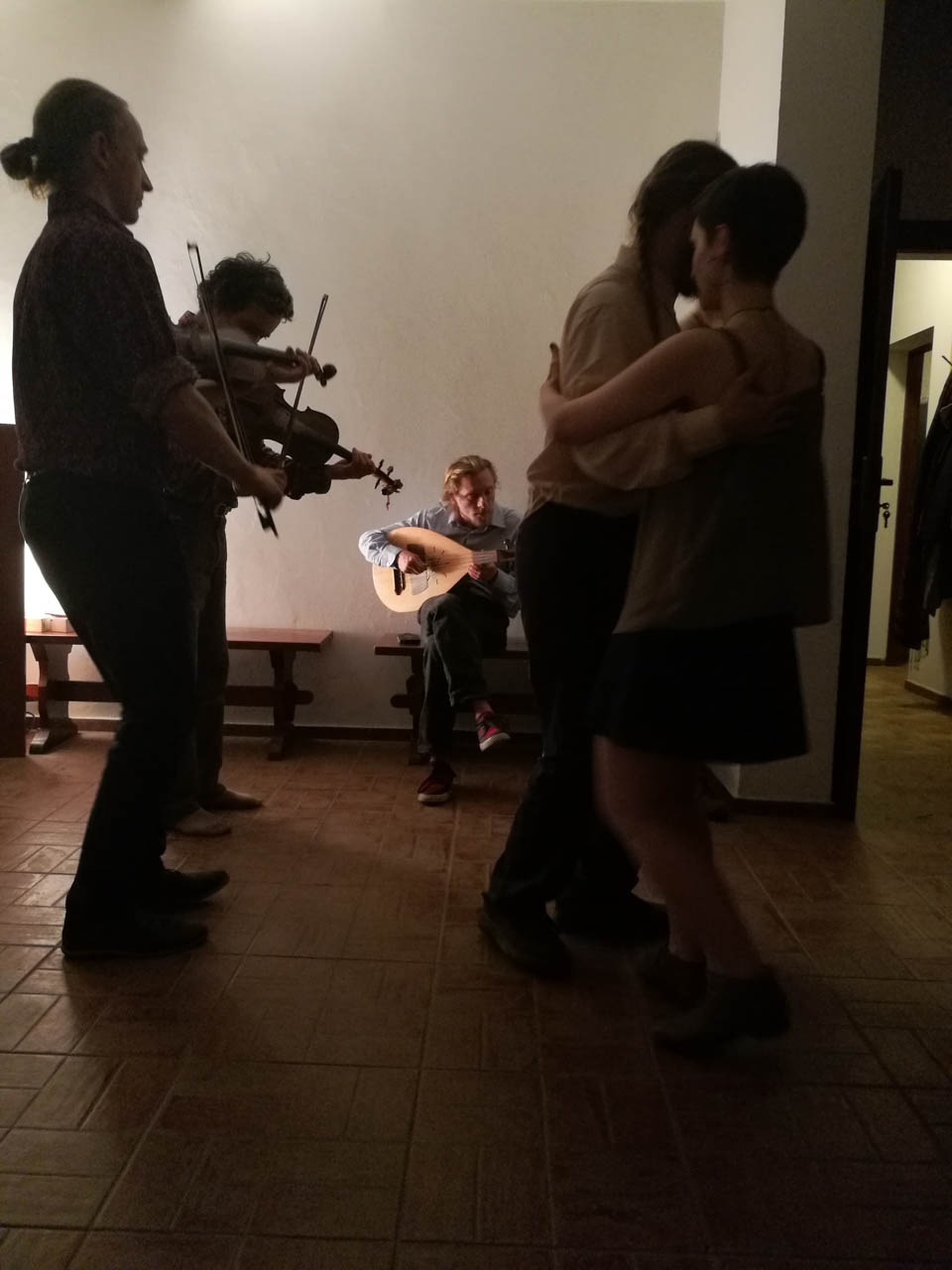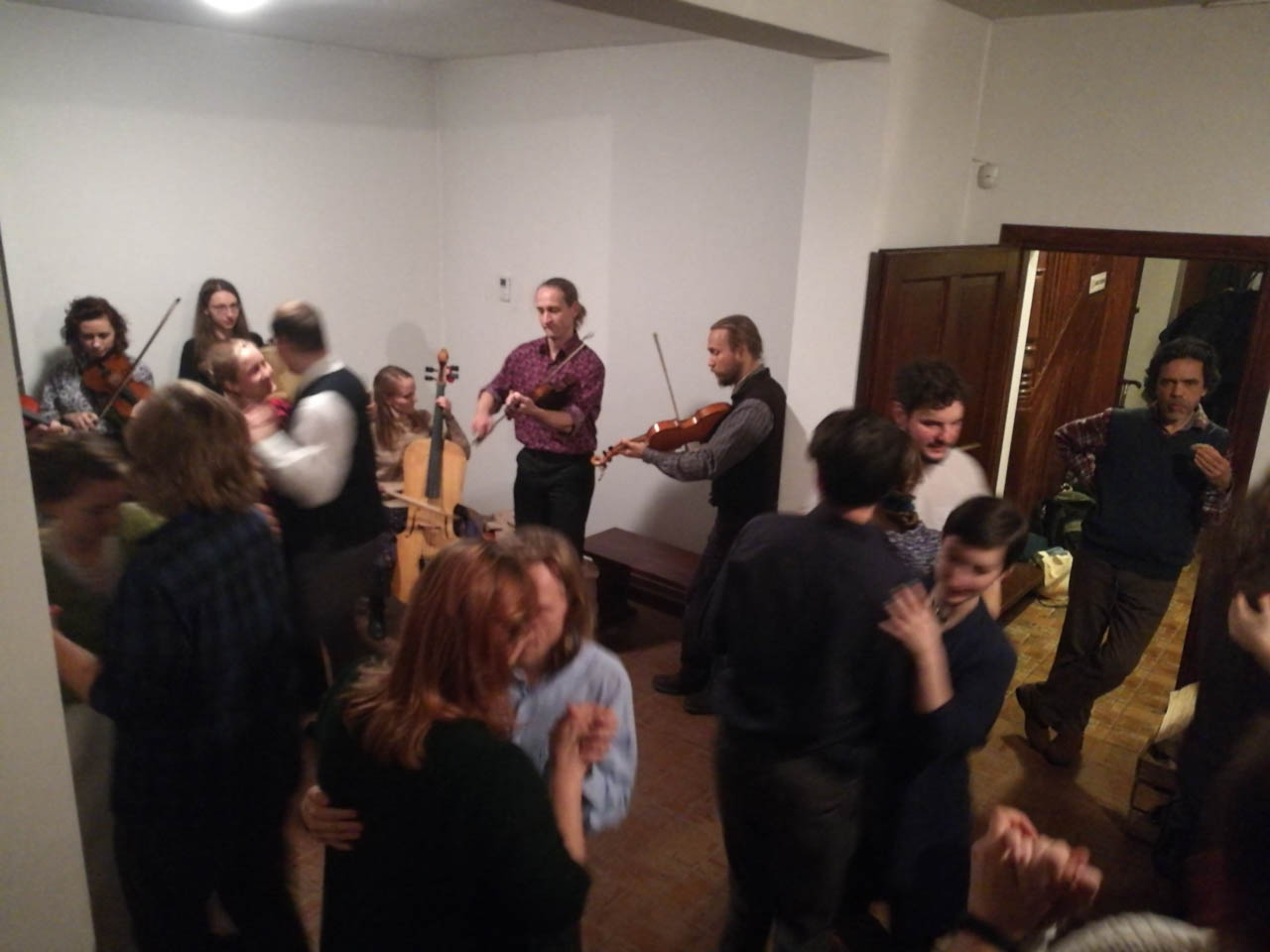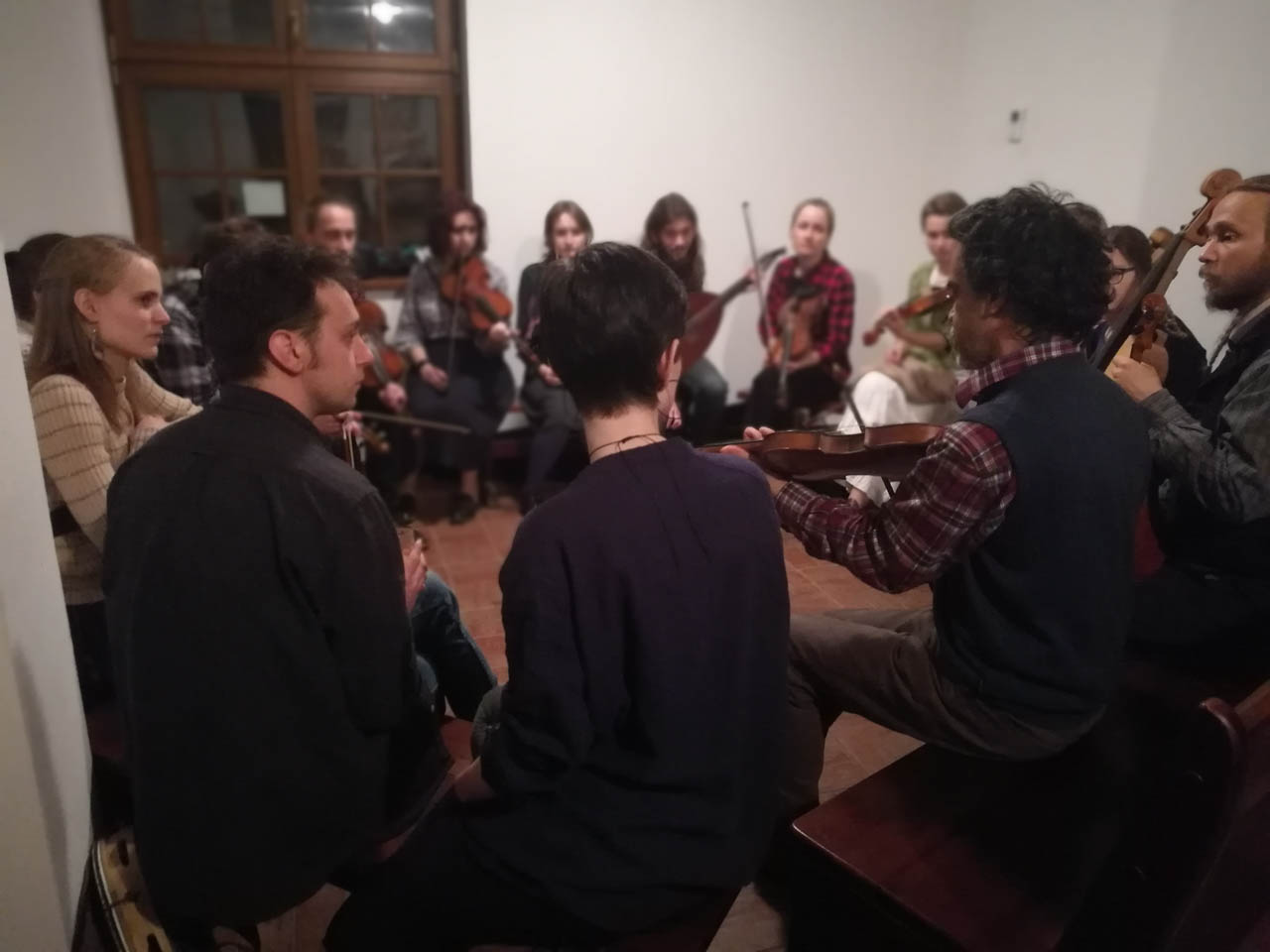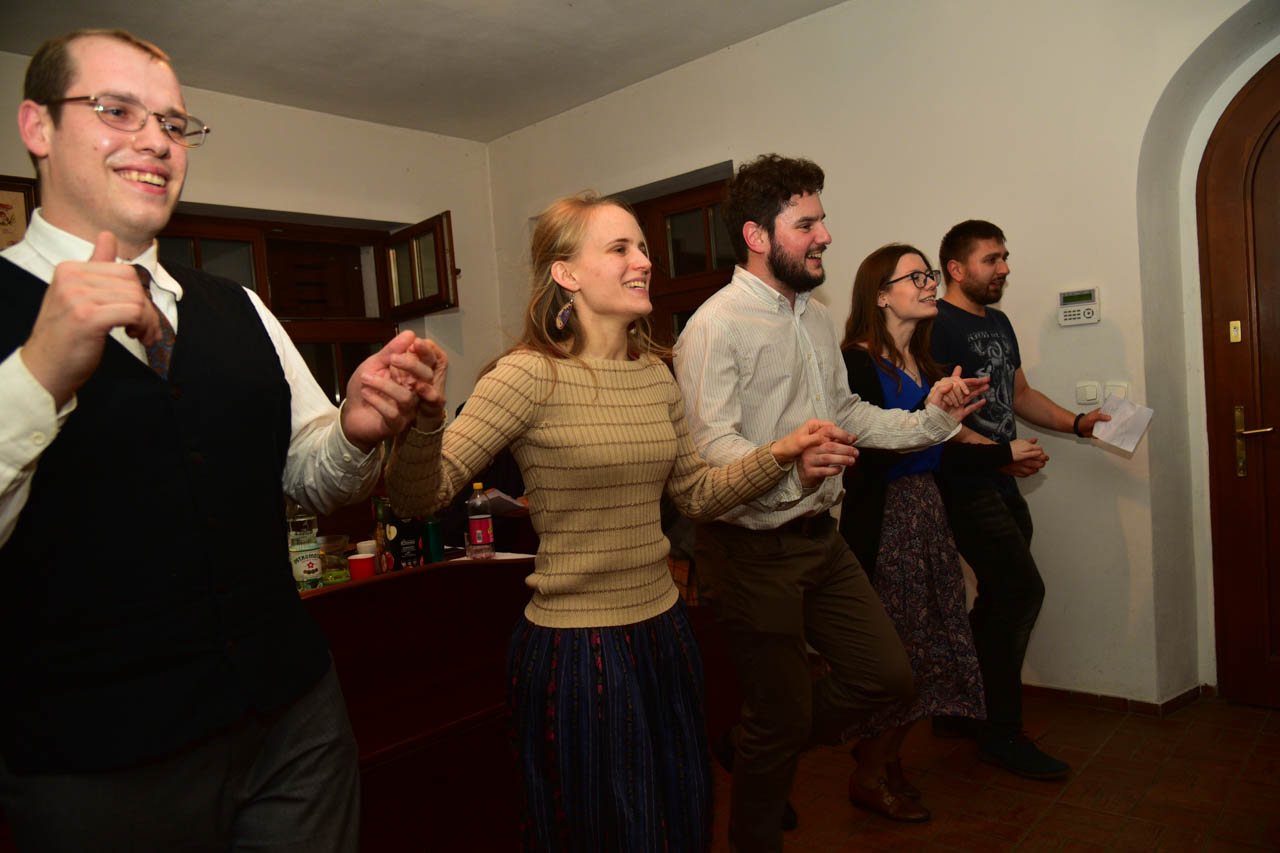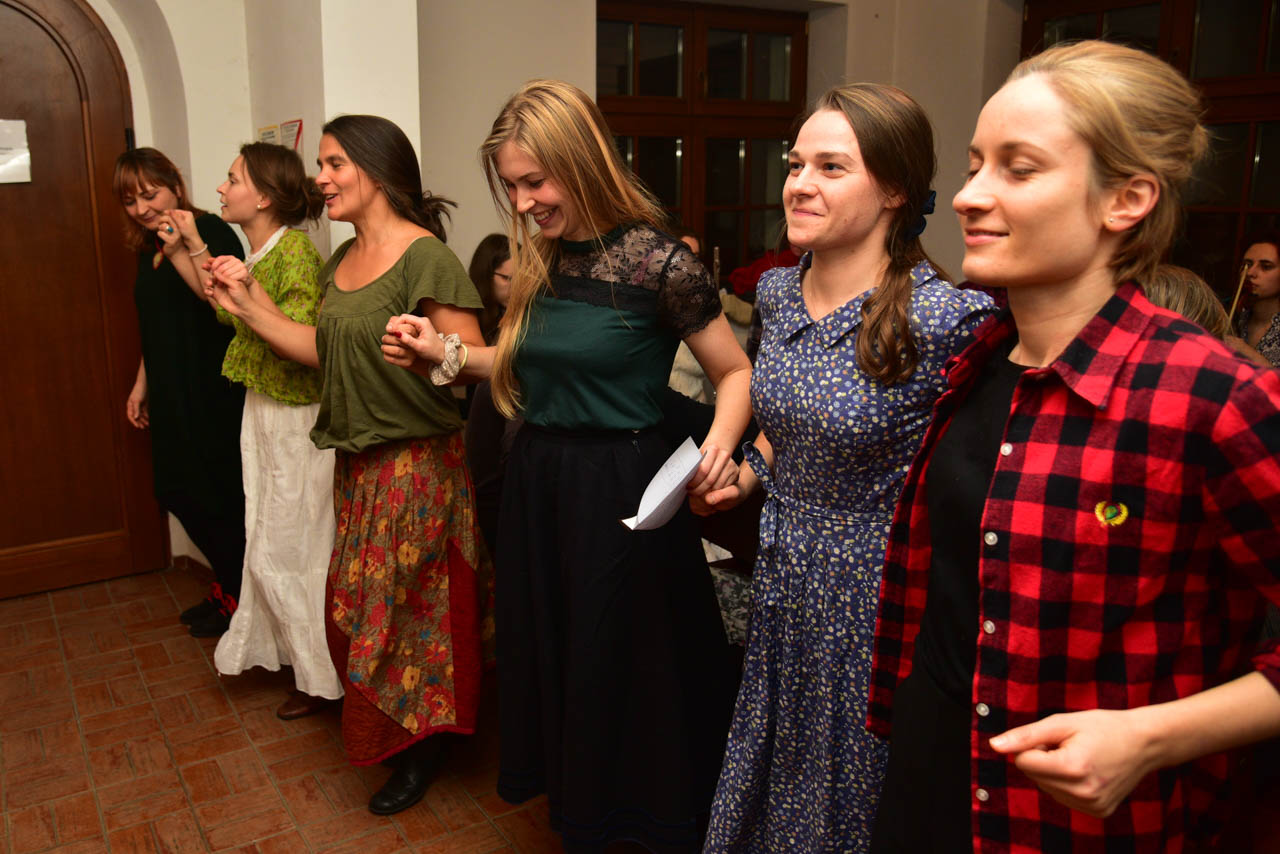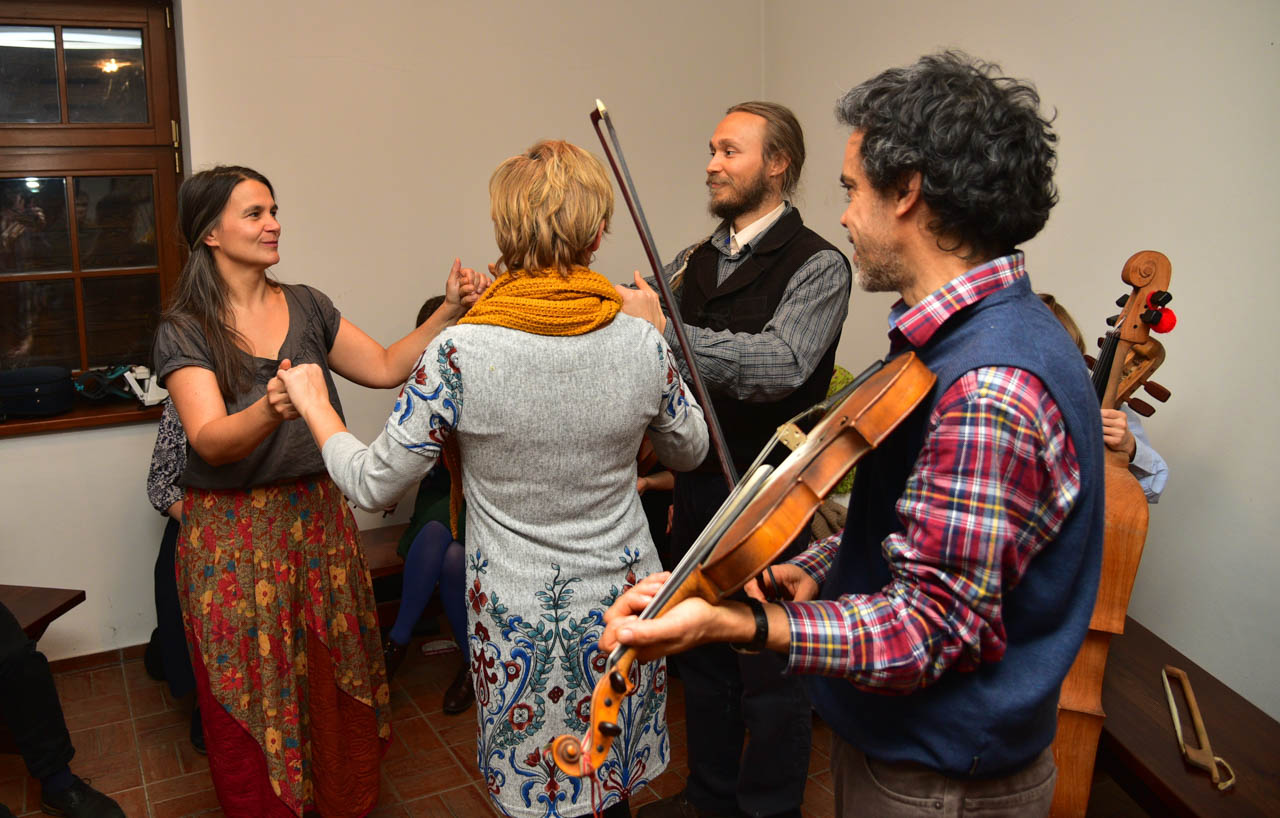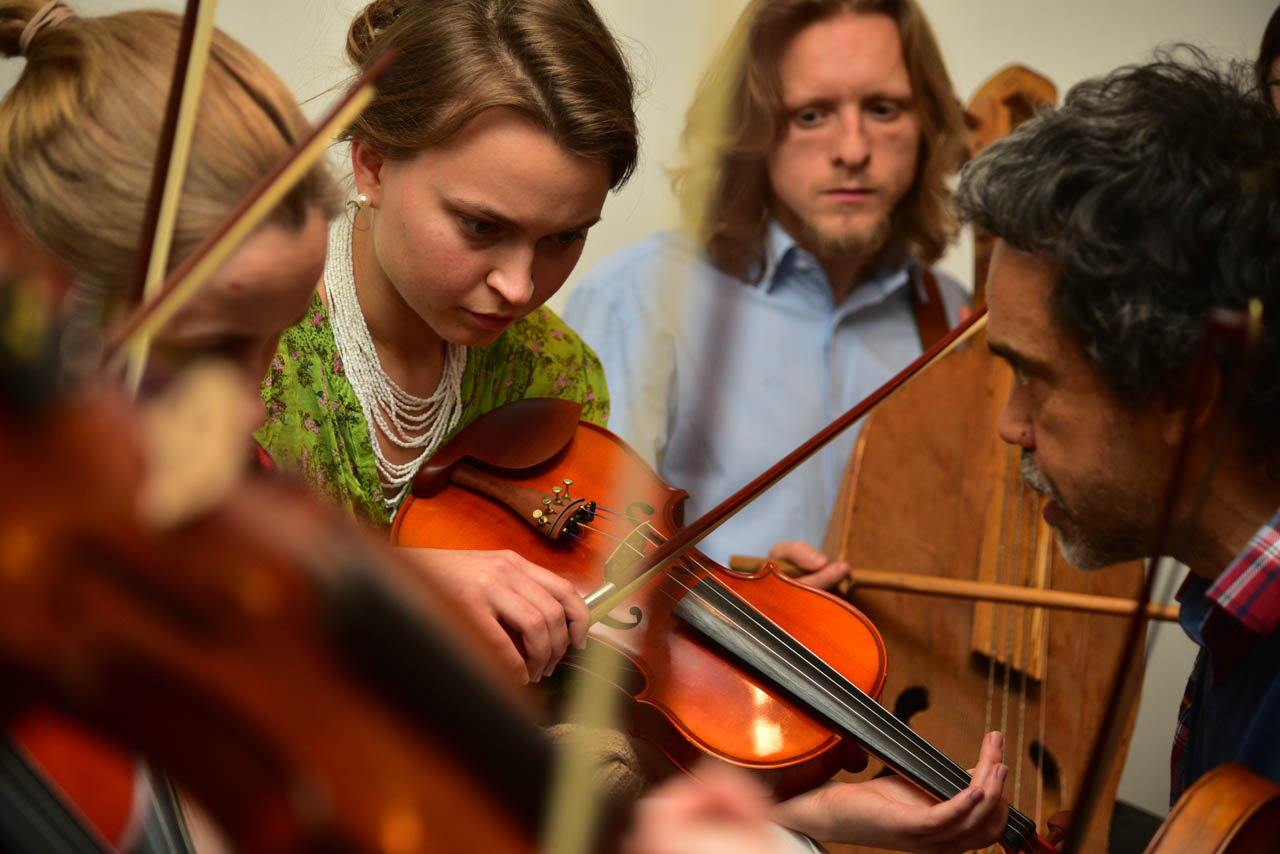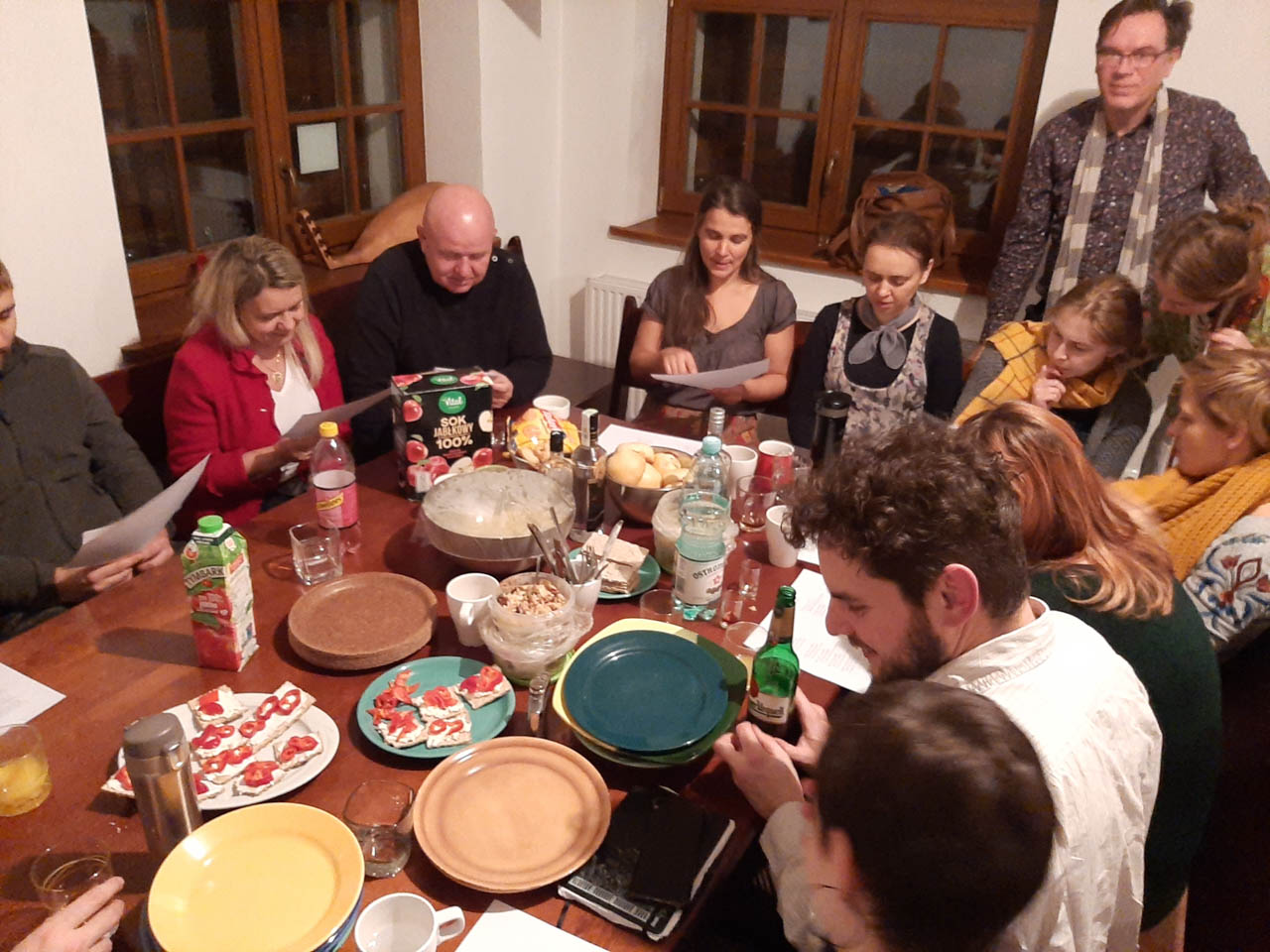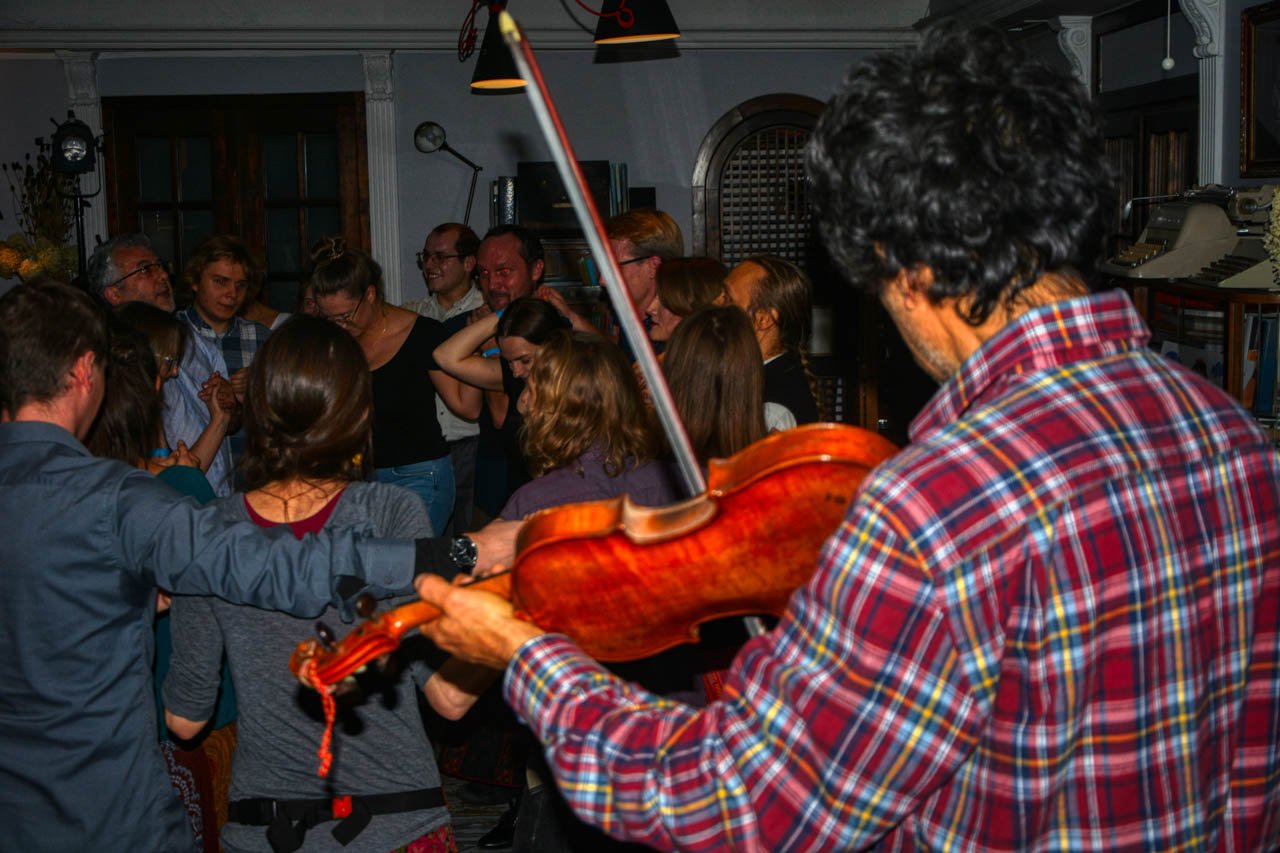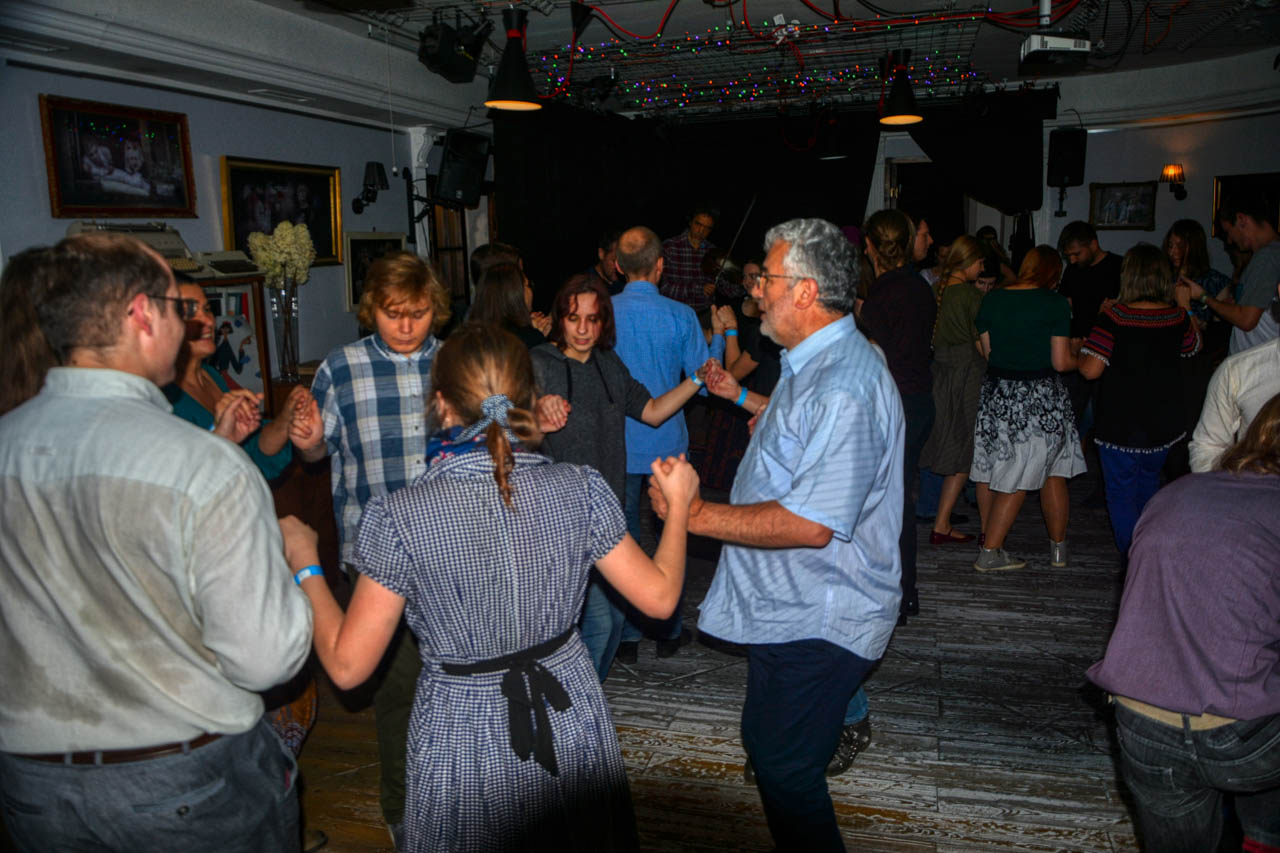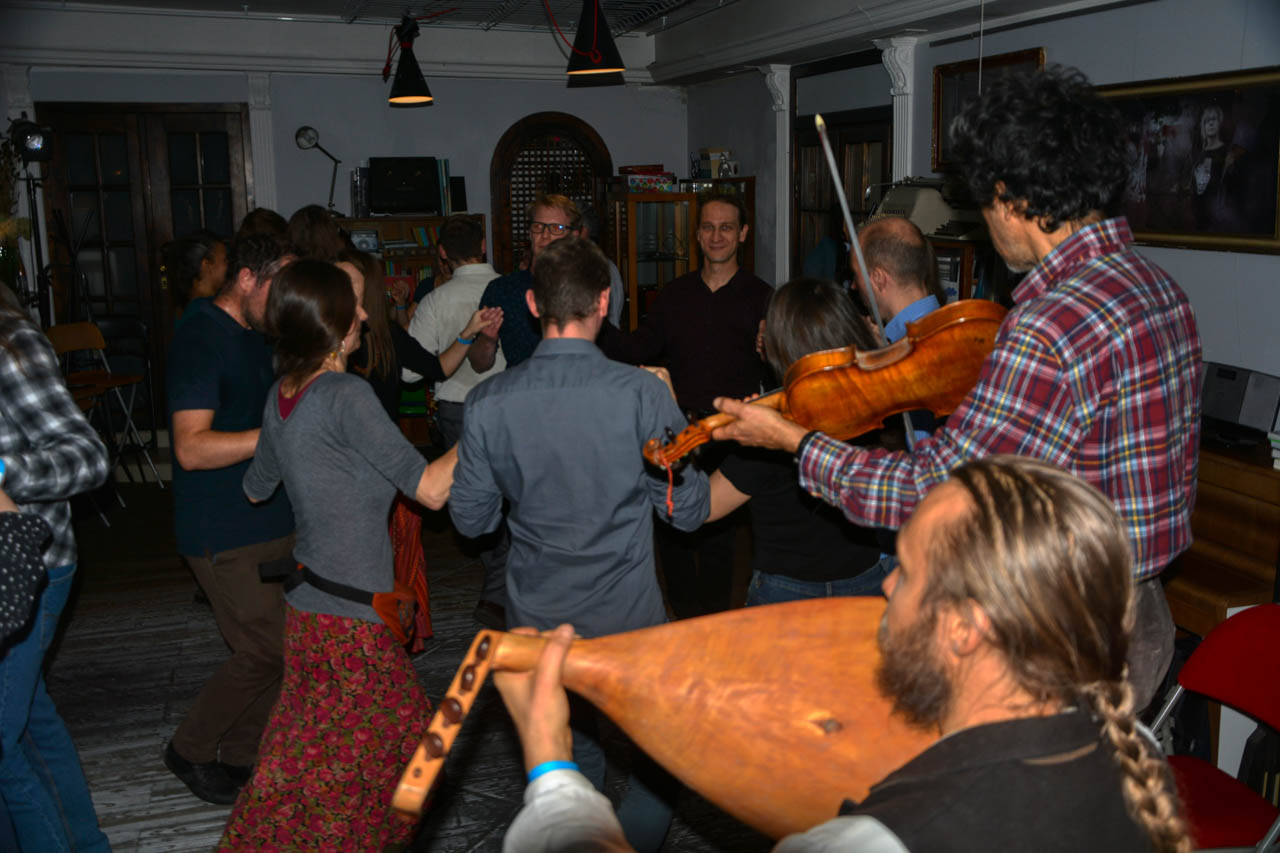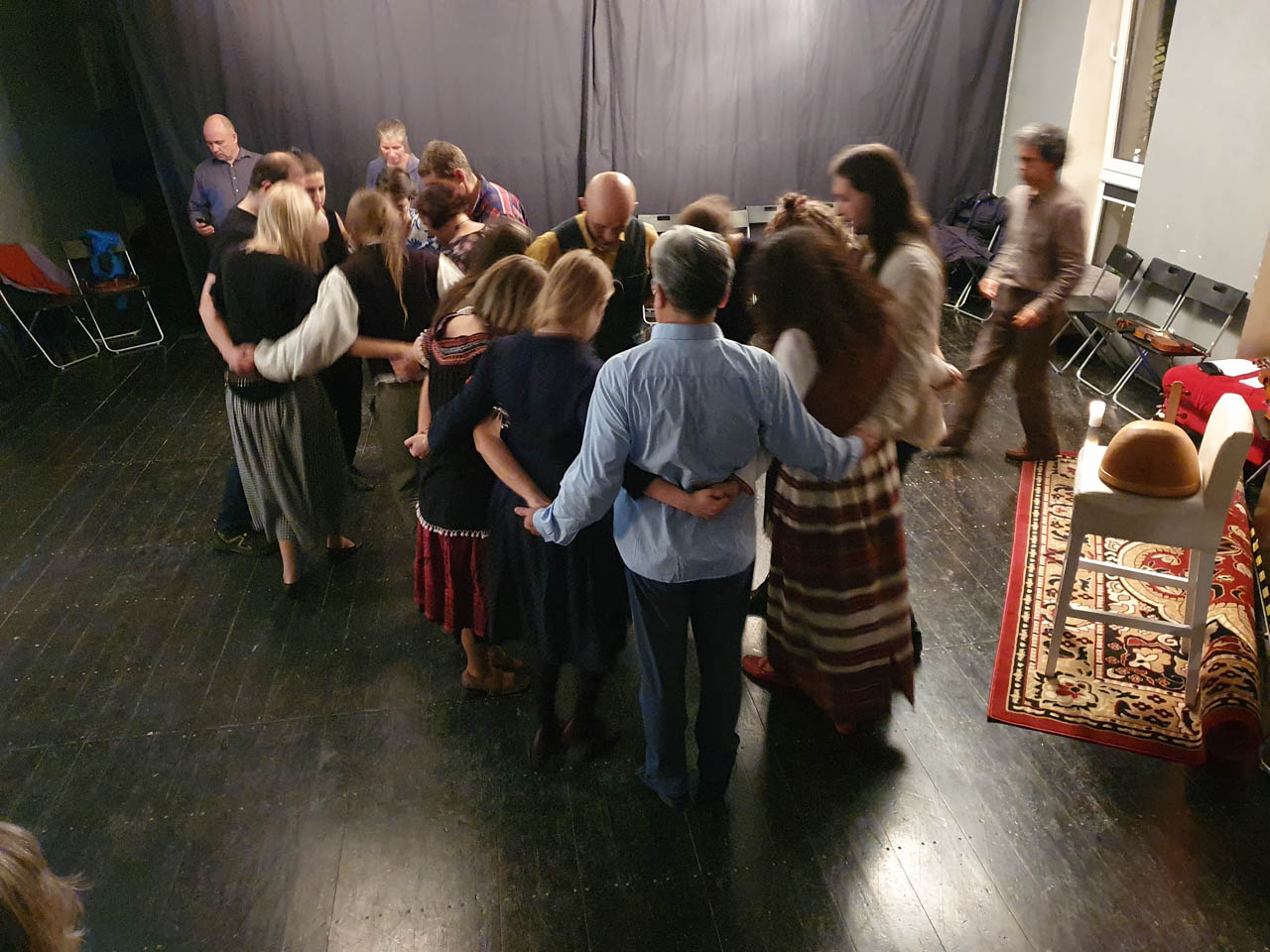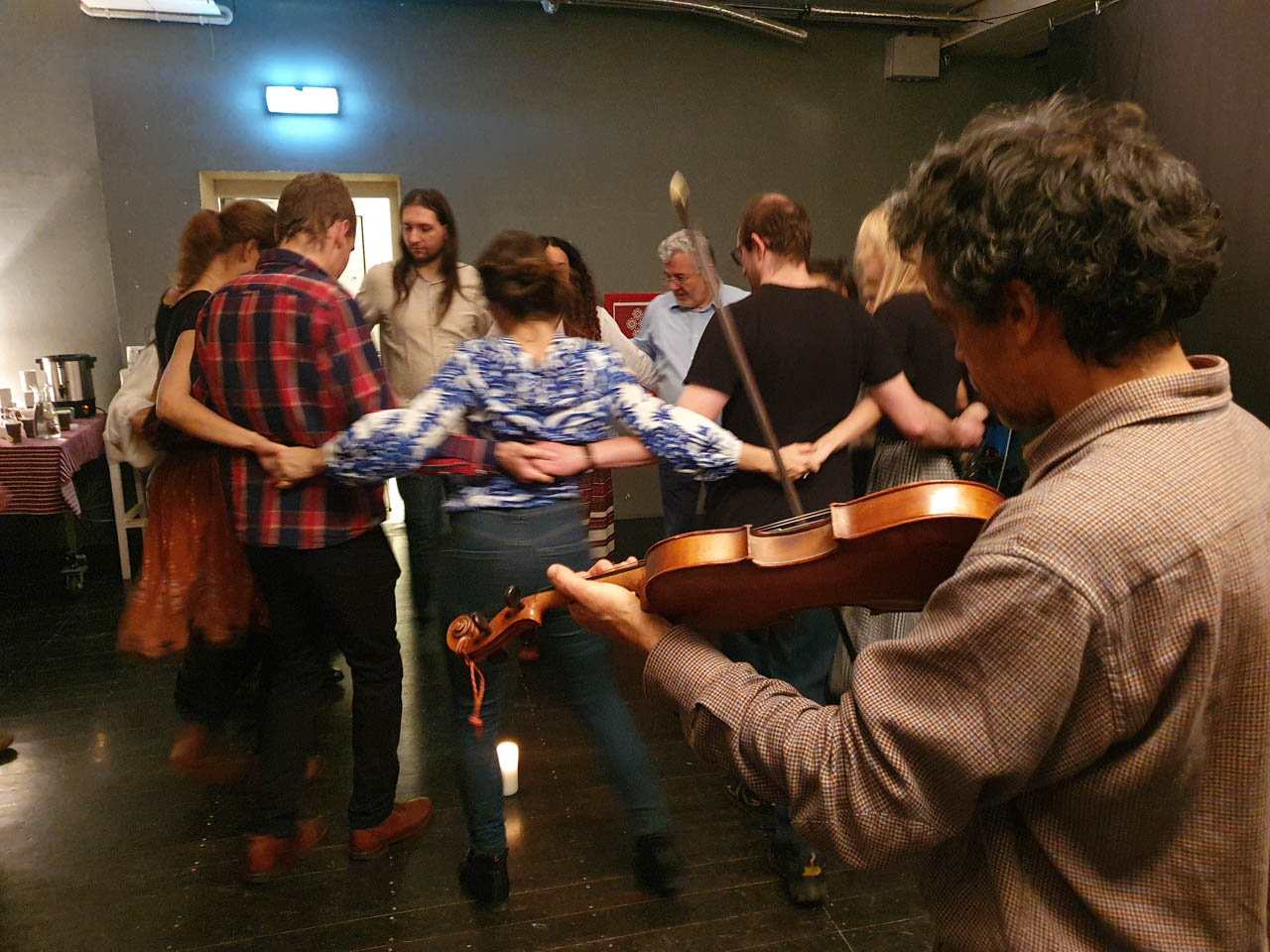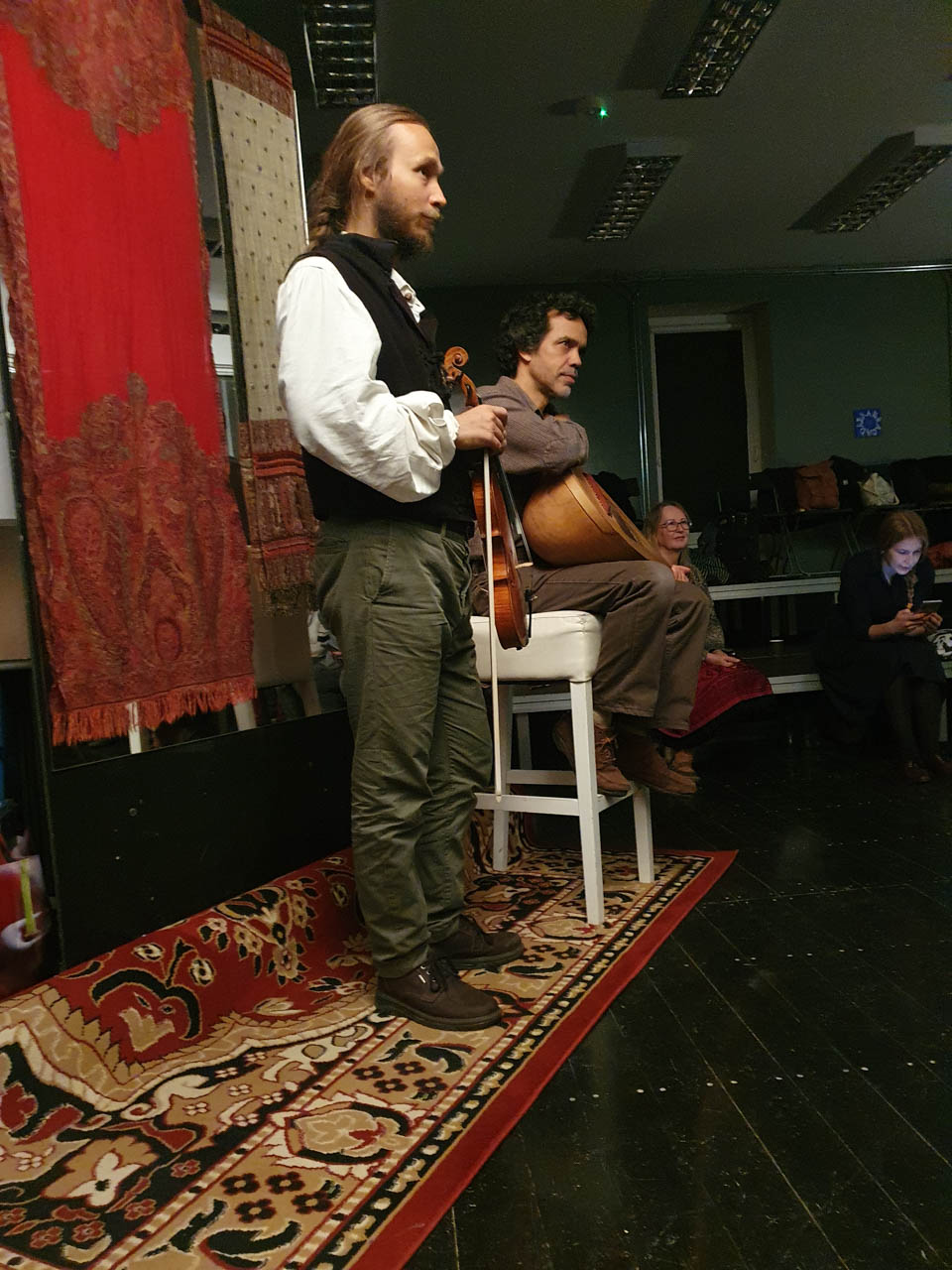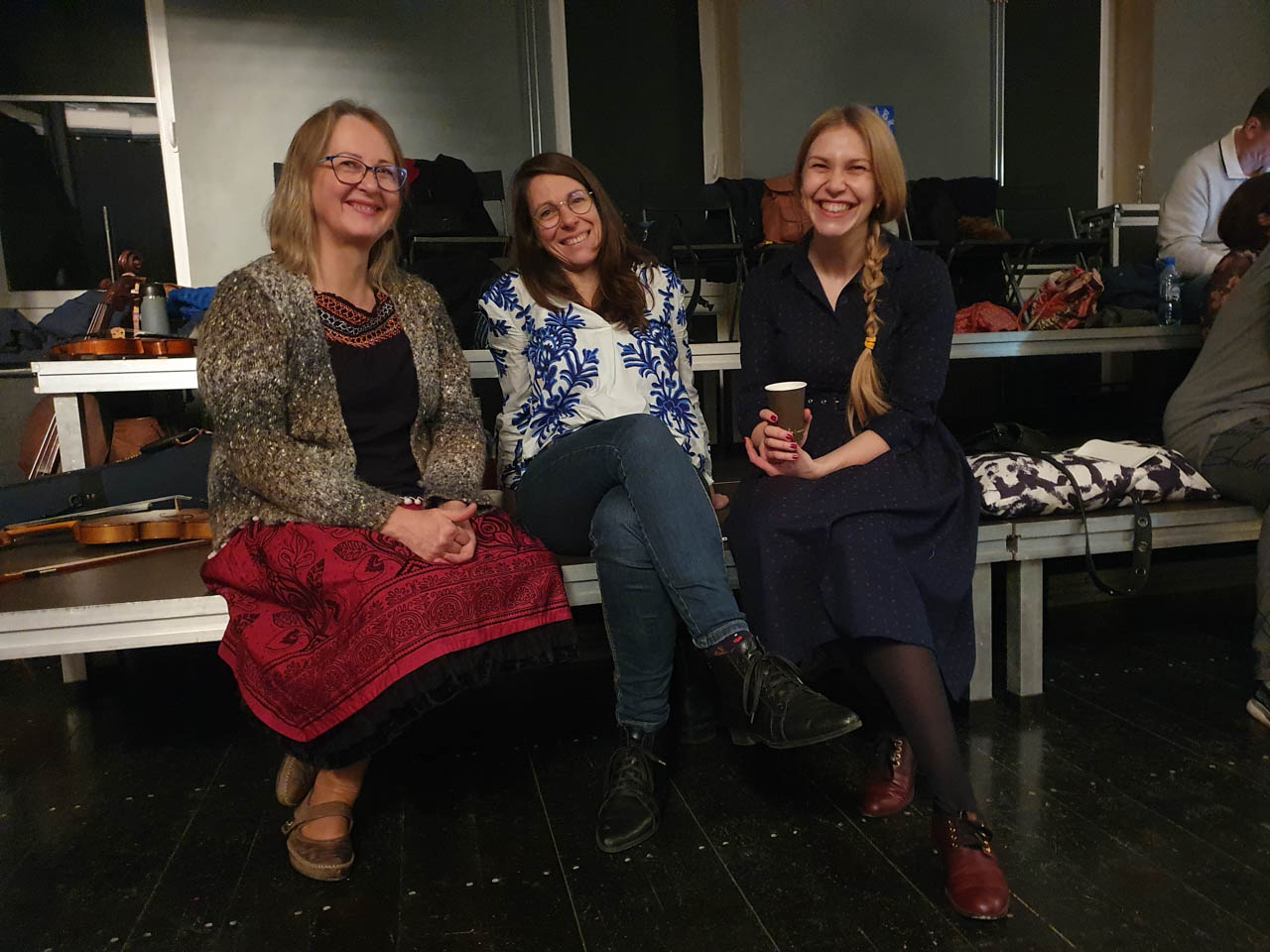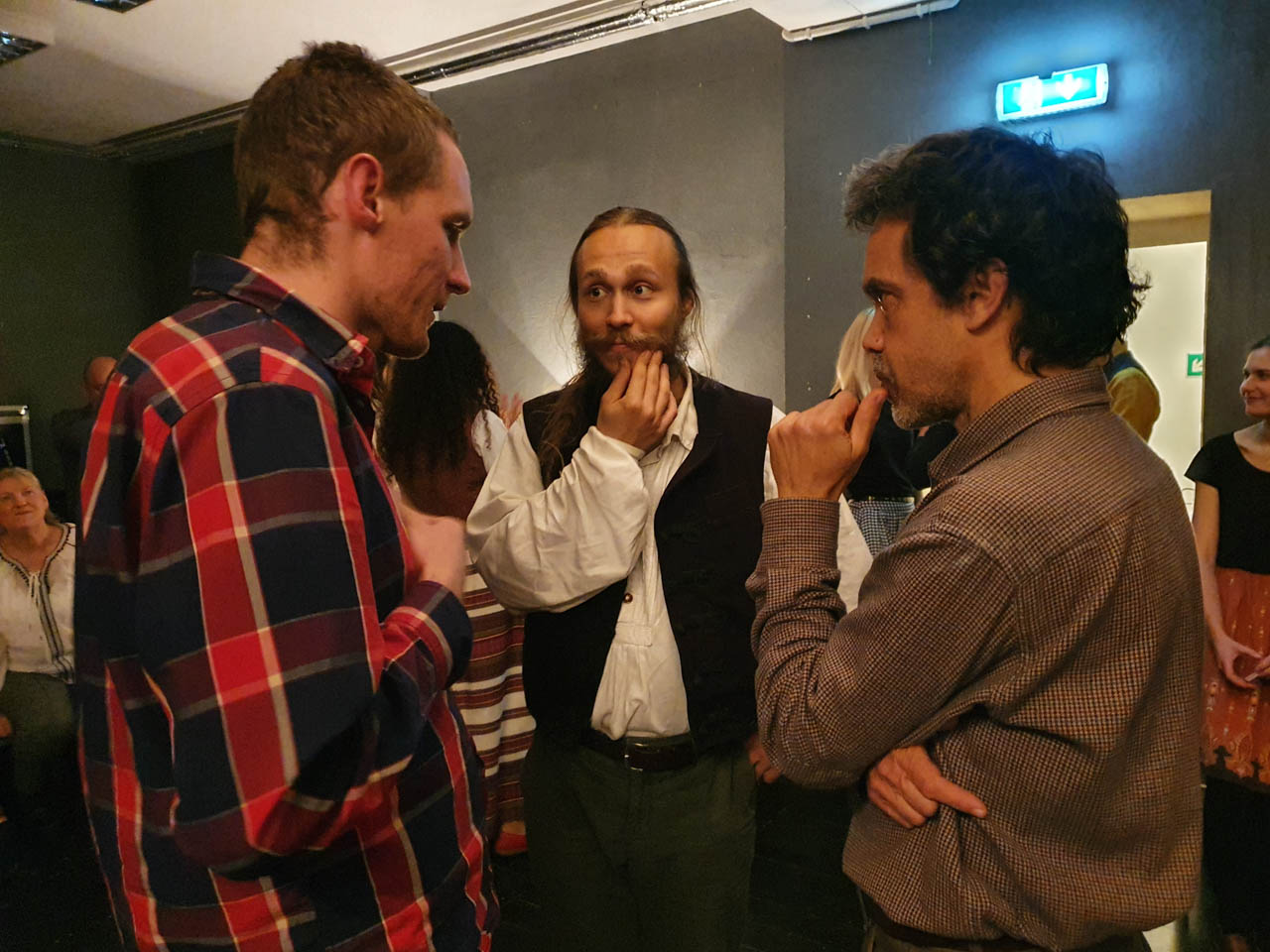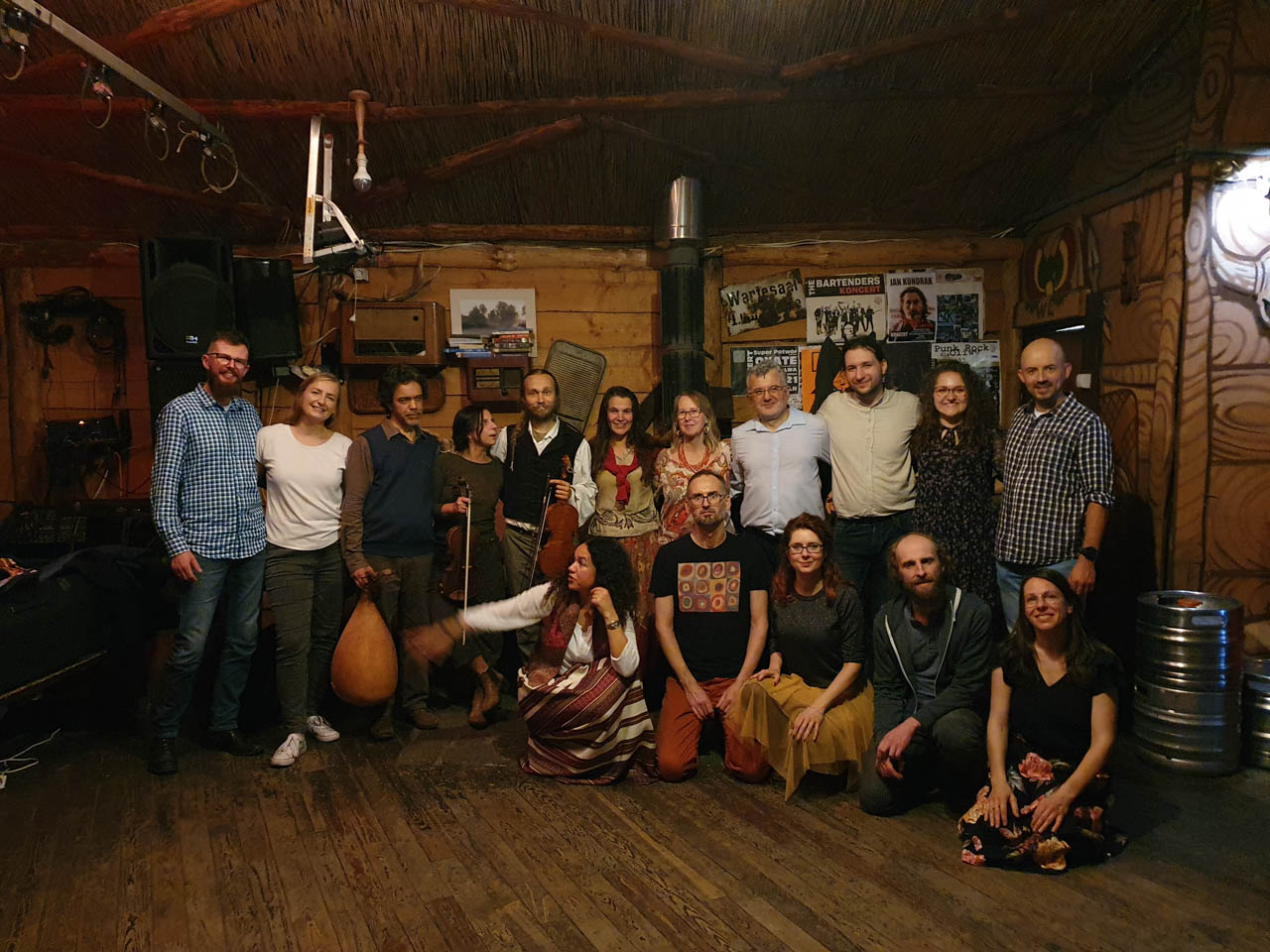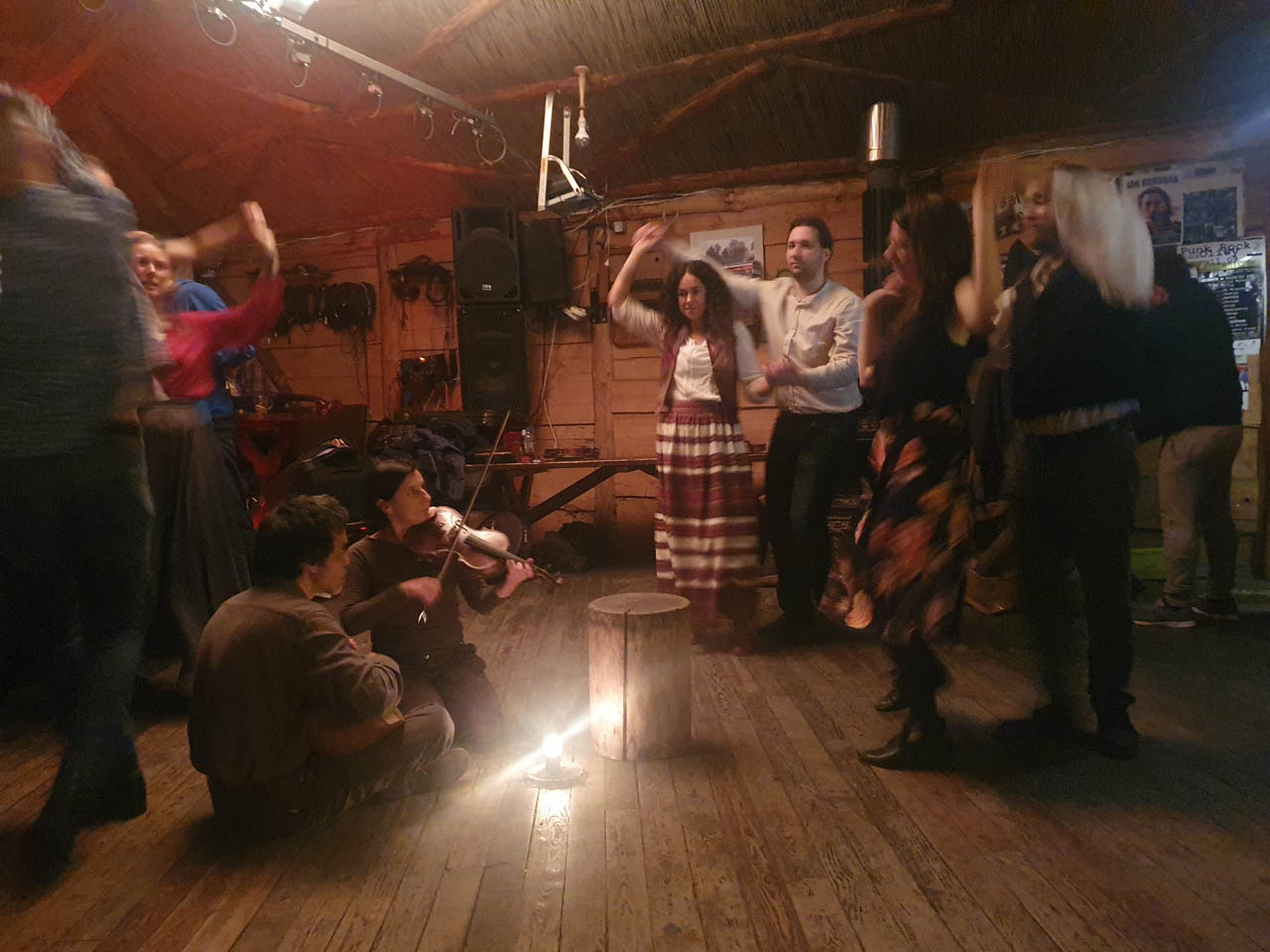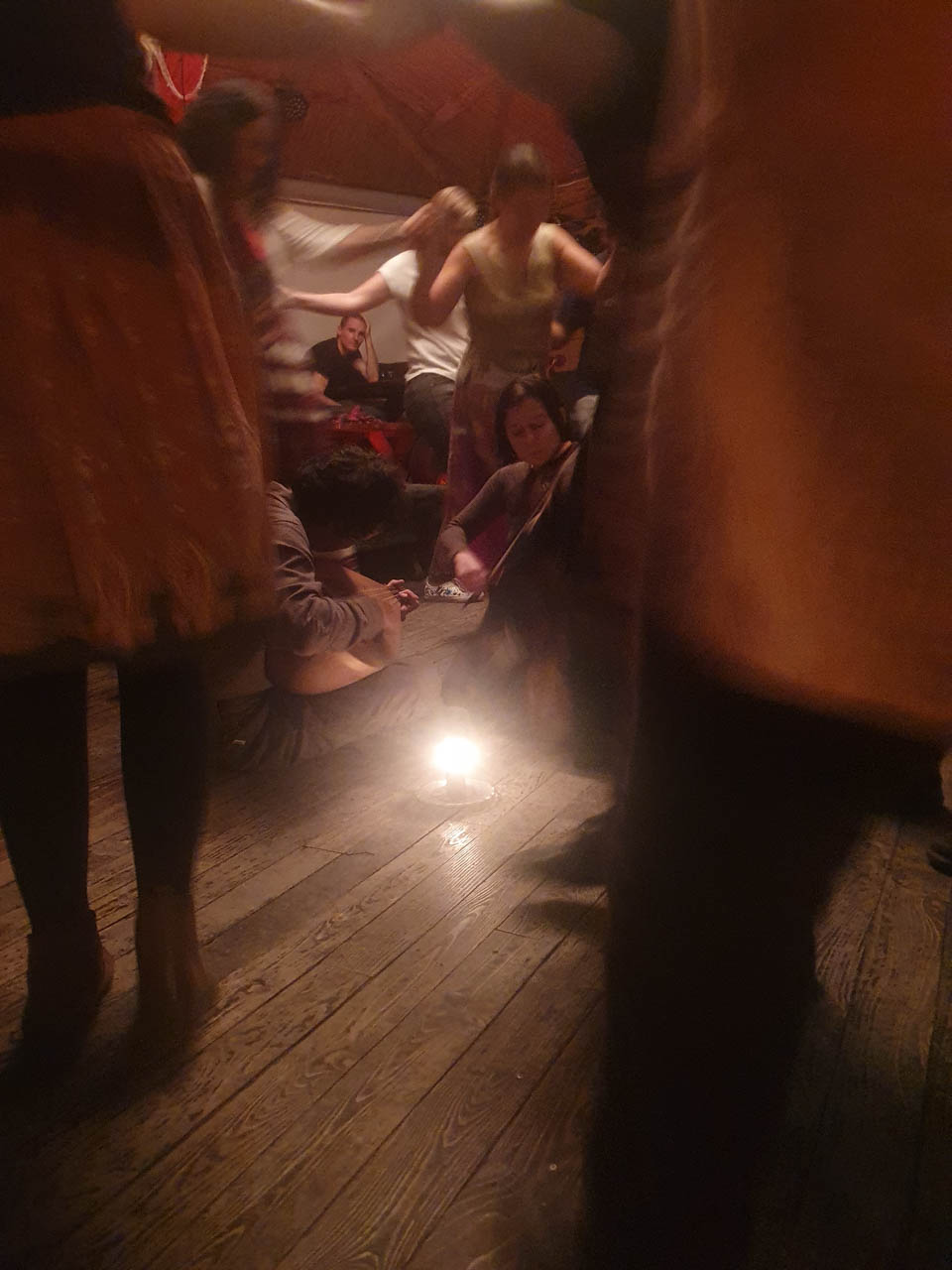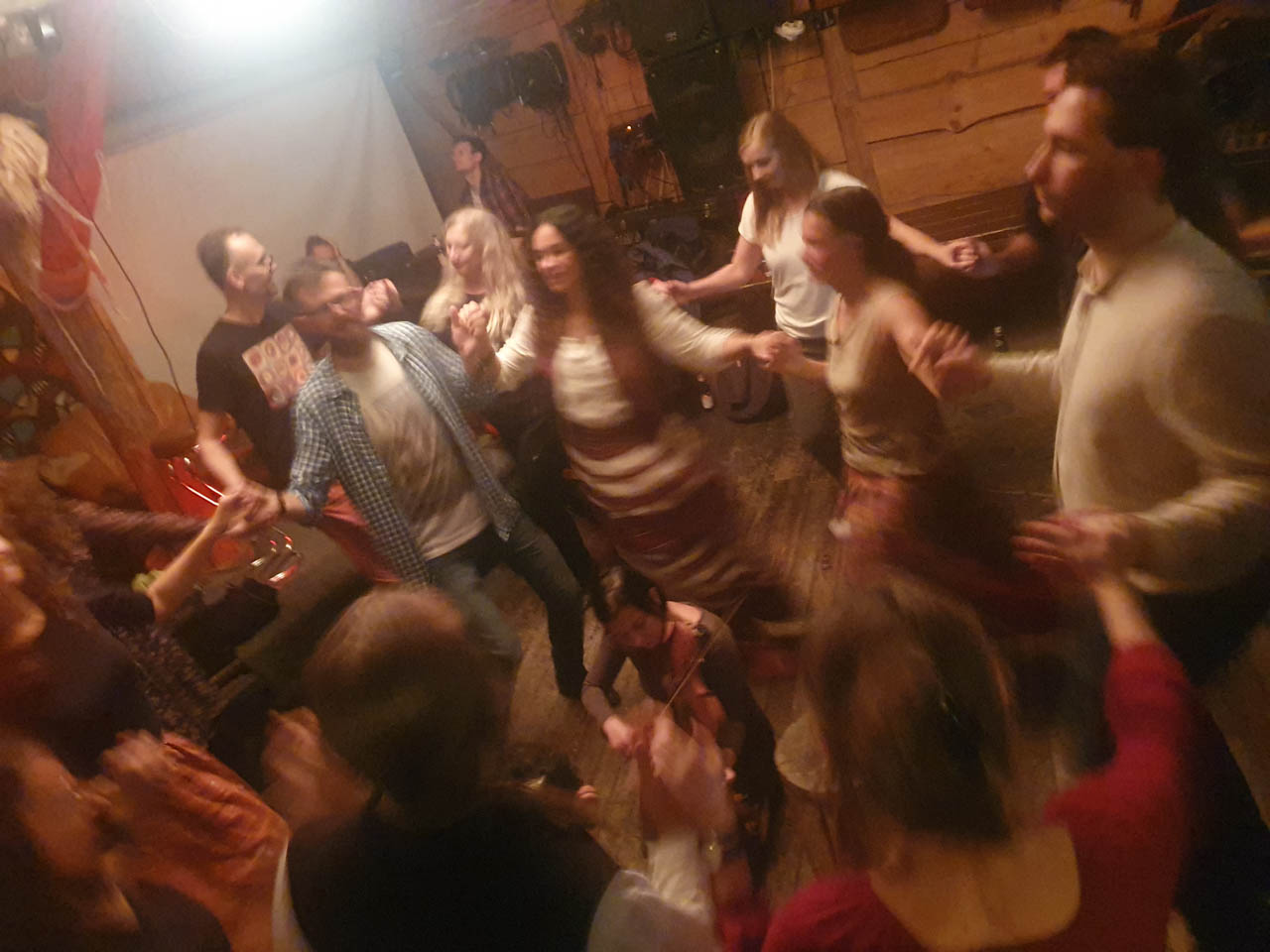Second Csángó Festival in Poland – between the Black Sea and the Baltic Sea

Five days filled with Carpathian music and Polish lowland music – from Moldova, Transylvania, Hutsul to Podkarpacie, and further among Radom and Kuyavia. Dances, songs and music will flow along the course of the Vistula River from the capital of Małopolska to the Tri-City. We unite seas, cities and, above all, people. Dancing together knows no boundaries, so people can communicate without words. The geographical location and rich history have made it possible to hear Balkan, Gypsy, Jewish and even Polish melodies in the music of The Csángós.
II Festiwal Csángó w Polsce
Between the Black Sea and the Baltic Sea
3-7.11.2021
Krakow, Gdańsk, Toruń
Five days and nights, three cities and countless dance steps and singing and music together. The 2nd Csángó Festival in Poland took place from November 3 to 7, with the participation of artists from Hungary, Ukraine and Poland. Everyone has an appetite for more.
In Poland, we are witnessing a burgeoning love of traditional folk culture among residents of large cities. Inspiration came from Hungary, where the dance house (táncház) movement began more than half a century ago. „Our dream is also to draw new people into this circle, into this atmosphere, so that they can also feel the positive emotions that we experience while already immersed in the beauty of traditional culture”. – Say the artists from the Szépszerével group, who organize the Csángó dance house in Budapest every Wednesday.
Why Csángó culture?
„‘Pole and Hungarian brothers be’ is a saying known to almost everyone in the country on the Vistula and Danube, and we put this idea into practice. We are the continuators of the centuries-old friendship between the two nations, and dancing and making music together allows us to communicate on a deeper, because without words, level”. Says Joanna Mieszkowicz, organizer of the festival and instructor of chango dancing and singing.
The Csángó are one of the five major Hungarian ethnic groups. The Csángó live in Moldova and Gyimes, regions that lie on either side of the Eastern Carpathian Mountains, within what is now Romania and was once the Kingdom of Hungary. Their geographic location and rich history have meant that Balkan, Gypsy, Jewish and even Polish melodies can be heard in the music of the Csángós.
A musical tabor in the village of Somoska (Somușca, Bacau area, Romania) in the summer of 2008 gave birth to a friendship between Joanna Mieszkowicz and Gergely Samsondi Kiss, founder of the Szépszerével ensemble. „We have met sporadically since then, and since 2018 our artistic and educational activities have been intensified, resulting in more than a dozen dances and the second edition of the Festival”. – Mieszkowicz explains.
„The goal of our activities is to continue building relationships, friendships between supporters of traditional cultures of many nations, through the shared experience of its magnificence, fun, relaxation”. Explains Farkas Gyulai, a member of Szépszerével.
The festival program on each day consisted of a 2-hour workshop of Csángó dances with artists from Szépszerével, followed by dances with artists from Hungary, Poland, Ukraine.
About the festival artists
Zespół Szépszerével gra bardzo żywiołową, często transową muzykę Csángó w jej najbardziej tradycyjnym wydaniu. Członkowie zespołu mieszkają w Budapeszcie, ale poznali muzykę i ludowe zwyczaje dzięki własnemu doświadczeniu, są bowiem uczniami wiejskich muzykantów, głównie z Siedmiogrodu. Gyulai Farkas i Sámsondi Kiss Gergely grają na skrzypcach, kobozie (rodzaj lutni), fletach i wymieniają między sobą instrumenty. Chętnie uczą publiczność tańców (Czangowie mają ich ponad 30!) oraz muzyki. Atutem tańców czango może być fakt, że większość to tańce w kręgu, zatem nie trzeba mieć partnera lub partnerki, a kroki są zazwyczaj proste, choć tempa bywają bardzo szybkie.

Kapela Ozimkiewicza (The Ozimkiewicz Band), consisting of Konrad Ozimek (violin), Paweł Iwan (dulcimer, vocals), Anna Iwan (bass, vocals), also played in Krakow. The artists focus on music, singing, dancing and alcohol from their hometowns (Przemyśl and Jarosław). They draw primarily on the work of Władyslaw Pirog and Wojciech Pilch of Słonne.
Olena Yeremenko was a guest on the program in Gdańsk. Olena was born in Ukraine to a family of musicians. At the age of 4 she began playing the violin. She graduated from first and second level music schools and the Academy of Music in violin class. After graduation, she deepened her interest in traditional music, including csángó music. She is a co-founder of the Burdon Folk Band, with which she has recorded four albums. She participates in many musical projects in Poland and throughout Europe.
In Gdańsk, they were joined by musicians from Trójwieska Association (the Tri-Village Association) and Kapela od 100 dni (the Band for 100 Days), which has been associated with the Association. Trójwiejska focuses on Polish traditions, mainly musical, though of course not exclusively. Their most frequent destinations are Kurpie, Kashubia and Kociewie, although they do not close themselves off to other directions. The association is formed by people from very diverse backgrounds, which allows them to sometimes make interesting design experiments. Their great pride is the facsimile edition of Śpiewnika Pelplińskiego (the Pelplin Songbook) in 2015 (after a break of more than a century). They co-founded the Kolberg Academy in 2014-2020, as part of which the Kurpie School of Traditions was created under their guidance. They also participated in the work of the Traditional Music Forum. Organizers of dances, workshops, research and documentation projects.
Grupa n obrotów (n obrotów group) is a Toruń-based group of enthusiasts of traditional dances, often strongly spinning environment and related bands. They not only dance, but also make music. They seek inspiration from the masters of dance, playing and singing of the oldest generation. They focus their interests on Kujawy, Kurpie and Scandinavian Polish dance, but do not shy away from the music and dance culture of the rest of Europe. They conduct dance, instrumental and singing meetings in Toruń that are open to all amateurs. And they go back to their roots in search of an eminent and refined beauty polished by centuries.
Green Event Standard
The festival was organized under the Green Event standard by the Aeris Futuro Foundation.. At every stage of the organization of the events, we tried to minimize the negative impact on the environment – we eliminated flights between Hungary and Poland in favor of railroads and hotel accommodation, all artists performed without the use of a stage as well as a sound system, we used local heritage and local resources (kitchen, lodge in the reserve) supporting and strengthening local communities.
We have an appetite for more, and the carnival is just around the corner
„The very enthusiastic experiences of many participants of the festival meetings allow us to believe that we will meet again soon”. Says Joanna Mieszkowicz, adding: „After all, in less than a month and a half the carnival will begin, and two years ago we had the pleasure of organizing the Carpathian Carnival with the Musicians’ Band in Krakow. It is worth maintaining good relations and traditions”.
If you feel like inviting probably the best csángó band we invite you to contact us:
Joanna Mieszkowicz,
tel. +48 693 589 391,
joanna.mieszkowicz@gmail.com
and via the event page.
Organizers:
Patron: Commission for Hungarian-Polish Non-Governmental Cooperation Program (https://varso.mfa.gov.hu/hun oraz https://www.gov.pl/web/diplomacy)
Partners: Liszt Institute – Hungarian Cultural Center in Warsaw; Consulate of Hungary in Gdańsk; Pomeranian Culture Incubator; n-obrotów Association; Rozstaje Association; Tilia Association; Trójwiejska Association; carphatian society; Pismo Folkowe magazine
* * *
Festival Program
3.11 Krakow, Strefa Club, ul. Św. Tomasza 31
6 p.m.-8 p.m. dance workshops – Szépszerével [HU]
8 p.m.-0 a.m. dance – Szépszerével [HU], Kapela Ozimkiewicza [PL]
4.11 Gdańsk / Paszcza lwa Club, ul. Kwietna 39
6 p.m.-8 p.m. dance workshops – Szépszerével [HU]
8 p.m.-0 a.m. dance – Szépszerével [HU], Trójwiejska [PL], Olena Yeremenko [UA]
5.11 Gdańsk / Pomorski Inkubator Kultury, ul. Słowackiego 21
7 p.m.-9 p.m. dance workshops – Szépszerével [HU]
9 p.m.-0 a.m. dance – Szépszerével [HU], Kapela od 100dni [PL]
6.11 Toruń / Wejściówka, Teatralny Square 1
18:00-20:00 dance workshops – Szépszerével [HU]
20:00-24-00 dance – Szépszerével [HU], agregandado [PL]
7/8.11 Toruń / Domek Tilii w rezerwacie
6 p.m.-8 p.m. music and singing workshops – Szépszerével [HU]
8 p.m.-3 a.m. dance – Szépszerével [HU], Skrzypkowie Dzielni [PL]


